

Can You Get a PhD without a Masters?
- Applying to a PhD
Yes, it’s possible to get a PhD without first having a Masters degree .
The conventional route for someone who earns a PhD is to pursue a Bachelor’s degree, followed by a Masters degree and then a PhD. However, several students opt to bypass a Master’s degree by enrolling onto a doctoral programme as soon as they complete their undergraduate degree.
Before we discuss how this can be done, it is worth mentioning the advantages and disadvantages of this route.
Advantages of Applying to a PhD without A Masters
The motivations for undertaking a PhD immediately after an undergraduate course are largely in saving money and time. This is because you will essentially eliminate a year of study. Another advantage of immediately enrolling onto a doctorate degree is project availability. If you find a project that you’re really interested in, it’s unlikely that it will still be available in a years’ time. Therefore, bypassing a Masters and enrolling directly into a PhD will increase your chances of securing the research project before it becomes unavailable.
Disadvantages of Applying to a PhD without A Masters
Although a Masters degree will add a year onto your academic journey, it can be incredibility helpful for your development and can help prepare you for a doctoral degree.
Not having a Master’s degree may prove to be a hindrance during your application process. This is because many other students will also apply to the same research projects, and it’s likely that the majority will hold a Masters. This will put you at a disadvantage to them.
Besides this, the dissertation project you’ll be required to undertake on a Master’s programme will provide you with a taste of what it is like to work on a research-based project. In addition to this, it’s likely that you’ll be able to select your own dissertation topic. As such, you can explore a specific field you’re interested in in further detail. This is a great way to confirm that both research-based work and the specific field you’re interested in are right for you before committing the next few years to it via a PhD.
Another advantage to the dissertation project associated with a Masters degree is the opportunity it provides you with to work closely with a project supervisor. This will help you understand the PhD student-supervisor relationship and communication frequency that works best for you. You can then use this knowledge to find supervisors who would compliment you when it comes time to find a PhD project to apply to. For tips on how to find a great PhD supervisor, check out our supervisor guide .
PhD without a Masters – How Does It Work?
To be considered for a PhD without a Master’s, at a minimum you will be expected to have a Bachelors degree. For students looking to enrol onto a STEM (Science, Technology, Engineering and Maths) PhD, a relevant Bachelors in a 3-year undergraduate course is usually expected. However, this is not the case for students looking to apply to non-STEM PhDs. Rather, students looking to apply to doctorates in subjects such as those surrounding Arts and Humanities are usually expected to have a relevant Bachelors from a 4-year course.
In addition to this, you will need to have demonstrated strong academic performance during your undergraduate course. This means that your Bachelors will need to be at least a UK Upper Second-Class Honours (2.1) for nearly all institutions to consider you.
Should you be accepted into a PhD programme without a Masters, the usual process will be to first register you as an MPhil student. You will then have a year to prepare and submit a thesis. Your thesis will need to detail the research you have carried out within that year and outline how you intend to continue it into a full PhD study. There are three outcomes of this MPhil thesis review:
- Failure and you’re not awarded anything.
- You pass, however, the supervisor doesn’t believe you’ve demonstrated strong research skills. You’re awarded an MPhil but they do not upgrade your course to a PhD programme.
- You pass and the supervisor believes you have proven yourself as a capable researcher. Your course is upgraded to a PhD as opposed to you being awarding an MPhil.
For more information on these outcomes, read the outcomes section of our PhD Viva guide .
Integrated PhD
Some universities offer Integrated PhD degree programmes (also known as an Integrated Masters degree). These are four-year programmes comprising of a one-year Masters degree immediately followed by a three-year PhD degree. These can prove a great option for graduate students who are looking to undertake a PhD without a Masters but are struggling to meet the eligibility requirements. You can read about the many benefits of integrated degrees here .
Finding a PhD has never been this easy – search for a PhD by keyword, location or academic area of interest.
PhD without a Bachelors – Is It Possible?
Yes, it is possible to get a PhD without a Bachelor’s, however, this is extremely uncommon.
When this occurs, it is almost always reserved for very mature individuals. For example, an individual may not be in active academia but still may have significantly contributed to their field. This contribution could be through the work they have undertaken as part of their career, or as part of a long-term study project, they have undertaken out of self-interest.
In either case, the individual would need to prove that they have extensive experience in their field and have directly contributed to new knowledge within it. The key factor here is that their work has pushed the boundaries of existing knowledge. It is not enough for an individual to be regarded as an expert in their field – they must have contributed something new and meaningful. It’s common for individuals awarded a PhD through this means to have produced several publications within their lifetime. It’s also common for the individual to have gained several professional accreditations within their field before even being considered suitable for a PhD research degree.
Universities Offering PhD without a Masters
Unfortunately, there is not a centralised list of universities which offer PhDs without a Master’s degree. The reason for this is that the edibility requirements differ from PhD to PhD and from department to department.
Therefore, you will need to check the guidelines for each individual university and the requirements for each specific PhD you’re interested in.
Should you find a PhD programme you can apply to with a Bachelors, make every effort to make your application as strong as possible. This is because you will be competing against other candidates, most of who will have a Master’s degree.
Not only can you strengthen your application by having a Bachelors with a First-Class Honours (1st), but you can also do so by showing the traits of a successful researcher. This includes showing a genuine interest in the project, a high work ethic, and exceptional communication skills.
Additionally, a strong letter of recommendation from a respected university lecturer will prove very beneficial. This is especially true if the lecturer supervisors his or her own PhD students. This is because the lecturer will understand the skills required for an adept research student.
For more advice on how to apply to a PhD degree, check out our Application Process Guide.
Browse PhDs Now
Join thousands of students.
Join thousands of other students and stay up to date with the latest PhD programmes, funding opportunities and advice.
2024 Best Universities That Offer PhD Without Masters
It may sound like a dream, but universities that offer PhD without a masters do exist.

Imagine fast-tracking your way to becoming a doctor in your field, skipping the traditional master’s step, and diving straight into deep, meaningful research. This article is your guide to understanding this unconventional yet rewarding path.
Editorial Listing ShortCode:
We’ll explore the ins and outs of taking this leap to help you decide if this bold academic journey aligns with your aspirations and goals.
Universities That Offer PhD without a Masters Degree

Can you get a doctorate without a masters? For some, the answer is yes. In PhD programs without masters requirements, you can start working on your PhD right after earning your bachelor’s degree. This means you can focus on intensive research and specialized studies sooner.
It’s a path that may suit you if you’re keen on deepening your knowledge and expertise without the intermediate step of a master’s program. Typical eligibility criteria for these programs include:
- Strong undergraduate academic record
- Research experience
- Recommendation letters
- Well-crafted statement of purpose
- Standardized test scores (if required)
According to the Bureau of Labor Statistics (BLS) , higher education often leads to better job prospects and higher earnings. This route not only saves time but can potentially set you up for promising career opportunities.
You’ll be expected to start your research early. This could be a great fit if you’re already clear about your academic interests and ready to commit to a rigorous research schedule.
Advantages of Fast-Tracking to PhD
Deciding to go straight for a PhD without a master’s degree can be a big step toward your future goals. Here are some potential benefits for considering PhD online programs without masters requirements:
- Speed up your journey : By skipping a master’s program, you may get to your career goals faster.
- Save money : Like any college program, earning a master’s degree can be expensive.
- Immediately deep dive into your interests : Passionate about your field? You may jump straight into advanced studies and research.
- Unique opportunities : These programs can help open doors to rare and exciting research chances, placing you at the forefront of innovation early in your career.
- Stand out : Earning a PhD is a powerful statement about your ambition and skills.
Stepping directly into a PhD program may allow you to fast-track your ambitions and pave the way to a fulfilling future.
Disadvantages and Challenges of Direct PhD Programs

Jumping into a PhD without a master’s degree takes courage. It’s crucial to know the hurdles that might pop up before you start researching PhD programs online without masters requirements.
These are some challenges you may encounter:
- Rapid pace : You’ll likely face a steep learning curve without the preparation a master’s program can provide.
- Immediate research pressure : You’re expected to start producing original research right away.
- Fewer networking opportunities : Skipping a master’s program means missing out on making those crucial academic connections that may be valuable down the line.
- Tougher funding : Funding opportunities often lean toward those with master’s degrees, so securing financial support might be more challenging.
- Self-doubt : Without the stepping stone of a master’s, you might question if you’re ready for this big leap.
According to the NSCRC , with more people pursuing advanced degrees, the academic world is getting more competitive. Navigating these challenges requires resilience and a clear vision of your goals. Choosing a direct PhD route is about weighing these hurdles against your determination and passion for your field.
How to Choose a Doctorate without a Masters Degree

Choosing the right PhD program is key. Here are some important factors to consider:
- Accreditation : Accreditation is like a quality stamp for the program, ensuring that it meets certain academic standards. You can find more information at the S. Department of Education – Accreditation .
- Financial aid and scholarships : Cost can be a big factor, and having financial aid or scholarships can make a huge difference. You can visit the FAFSA website for more information.
- Faculty expertise : You want to learn from the best and ensure they have experience in your area of interest.
- Research opportunities : This is your chance to get hands-on experience in your field.
- Program structure and flexibility : It’s important to consider class schedules, online vs. in-person options, and the balance between coursework and research.
Choosing the right doctorate program is a personal decision that will shape your academic journey. Taking the time to weigh these factors carefully can help you find the best choice to fit your goals and needs.
Applying to Universities That Offer PhD without a Master’s Degree

Applying for a PhD program is like presenting your academic story. Here are some tips to help make each part of your application a testament to your passion and potential:
- Your research proposal : This is a window into your interests. Show your enthusiasm and readiness for the field by making it clear, engaging, and indicative of your ability to bring fresh ideas.
- Letters of recommendation : These are your personal champions, so choose mentors or professors who know your strengths intimately and can confidently vouch for your PhD readiness.
- Showcase your research journey : Research experience is a crucial part of your narrative. Highlight your involvement in projects, papers, or presentations.
- Ace the interview : Be prepared to discuss your motivations, research interests, and how you envision your growth in the program.
Your application is a holistic reflection of your academic identity. It should showcase your achievements and excitement for research and knowledge.
Do You Need a Masters to Get a PhD?

While many paths to a PhD traditionally start with a master’s, there’s a growing trend of programs allowing students to jump straight into doctoral studies from their bachelor’s programs.
This option may be perfect for those who are clear about their research interests and ready to dive into academic exploration. If you’re passionate, determined, and have a clear vision for your research, a direct route to a PhD may be your path forward.
Universities Offering Online PhD Without Masters Degree Programs
Methodology: The following school list is in alphabetical order. To be included, a college or university must be regionally accredited and offer degree programs online or in a hybrid format.

Capitol Technology University offers a PhD in Technology with two pathways for students who may not hold a master’s degree. Applicants may either already hold a doctoral degree or earn an MS in Research Methods while earning their PhD. CapTech’s program is fully online, and residencies are not required.
Capitol Technology University is accredited by the Middle States Commission on Higher Education.

Clemson University offers a PhD in Healthcare Genetics and Genomics. Applicants must hold at least a bachelor’s degree in a related field with a 3.0 cumulative GPA. Applicants who hold a master’s in the field may be given preference. The program is fully online, and courses are in a synchronous format.
Clemson University is accredited by the Southern Association of Colleges and Schools Commission on Colleges.

Indiana University offers a PhD in Music Therapy through the Purdue School of Engineering and Technology at IUPUI. Students who do not already hold a master’s degree can earn a Master’s in Music Therapy through the program. The program requires the completion of 90 credit hours, including a dissertation, and is fully online.
Indiana University is accredited by the Higher Learning Commission.

Students who do not hold a master’s degree may apply for a PhD in Computer Science through Mississippi State University. The program is fully online and does not require campus visits. Courses follow a semester schedule, and there are start dates in the fall and spring. Applicants are not required to submit GRE or GMAT scores.
Mississippi State University is accredited by the Southern Association of Colleges and Schools Commission on Colleges.

Students who do not hold a master’s may earn a PhD in Computer Science through Nova Southeastern University’s bachelor’s track. The program requires the completion of 66 credits and is available fully online or on campus. The program has start dates in August, January, and May and follows a semester schedule. NSU is an NSA-designated school.
Nova Southeastern University is accredited by the Southern Association of Colleges and Schools Commission on Colleges.

Saybrook University offers a PhD in Clinical Psychology program that is fully online. Students who do not hold a master’s degree must complete 103 to 109 credits to graduate, while those who do have a master’s in a related field must complete 100 to 106 credits.
The program can typically be completed in 5 years. It offers several specializations that may be declared, including Applied Psychophysiology, Creativity Studies, and Jungian Studies.
Saybrook University is accredited by the Senior Commission of Western Association of Schools and Colleges.

The University of Arizona offers a PhD in Nursing to students who hold a BSN through its BSN-to-PhD program. The program is mostly online, but short residencies are required. The program can potentially be finished in 4 years when attended full-time. Courses follow a semester schedule, and the completion of 79 credits is required to graduate.
The University of Arizona is accredited by the WASC Senior College and University Commission.

The University of Central Florida offers a BSN-to-PhD in Nursing program for those who do not hold a master’s degree in nursing. All coursework is online, but short intensives on campus are required throughout the program. Applicants are not required to submit GRE scores.
The University of Central Florida is accredited by the Southern Association of Colleges and Schools.

The University of Oklahoma offers a PhD in Nursing with a fast-track to PhD option for students who have a BSN but not a master’s degree. All coursework is fully online. The program can potentially be finished in 36 months, and there are start dates in the fall, spring, and summer. The completion of 78 credits is required to graduate.
The University of Oklahoma is accredited by the Higher Learning Commission.

The University of Wisconsin–Milwaukee offers a fully online program for a PhD in Nursing. Students with only a BSN may apply but must complete 15 additional credits before entering the program. The program starts every other year during the summer semester. It can potentially be completed in 3 years.
UWM is accredited by the Higher Learning Commission.
Advance Your Career: Starting Your PhD without a Masters Degree

Starting your PhD journey without a master’s degree can be a bold step forward in advancing your career, particularly if you pursue some of the highest paying doctorate degrees . It’s a path that speaks to those ready to dive into deep academic waters, driven by passion and a clear vision for their future, with the added potential of high financial rewards in cutting-edge and high-demand areas.
If this resonates with you, you can start exploring accredited universities that offer this opportunity, including those providing online PhD programs for working professionals . These flexible programs are designed to accommodate your busy schedule, allowing you to balance your professional responsibilities with your academic pursuits. Your aspirations and determination may fast-track you on your way to becoming an expert in your field!

Can you get a PhD without a master’s degree?

Traditionally seen as the pinnacle of academic success, a Doctor of Philosophy (PhD) rigorously prepares you for a career in research and academia that might even earn you the title of “Professor” one day. Getting a PhD is no easy feat, and involves years of gruelling hard work, often with a few life crises and probably thoughts of quitting in between. That said, the question of whether there’s a ‘shortcut’ on how to get a PhD often pops up in student forums and discussions.
Although getting a master’s degree after completing your undergraduate studies is the conventional route taken towards a PhD, you can in fact bypass your master’s degree entirely and go straight into a doctorate programme. Granted, not all subjects or countries have this option, but there’s plenty to go around if you want to save time and money to get your research going.
The University of California, Berkeley , for instance, only admits Bachelor’s degree holders into its political science PhD programme, with a possibility for students to obtain a master’s qualification if they withdraw from the doctoral degree as long as sufficient coursework has been completed. Similarly, you can get a PhD in the Ohio State University’s chemical engineering programme without having done a master’s .
Across the pond, the University of Cambridge can accept students without a master’s degree , where they’ll be placed in a probationary year before progressing into their dissertation. As you can see, various routes are available for direct PhD entry in different fields.
Once again: you don't need a Masters degree to get into a PhD program in America. And there's way more funding for PhD students than MS. Just in case no one told you. — Muneer Yaqub🇺🇸🇳🇬 (@elMunir5) February 21, 2022
How long does it take to get a PhD?
The doctoral degree is primarily a research degree , where you have to come up with your own original ideas and spend some years of fieldwork, lab work, or any other type of real-world practice that will contribute towards your final dissertation.
If you’re wondering why the US is a bit relaxed in terms of entry requirements, it’s probably because a PhD there is almost never a pure research degree, and generally takes a much longer time to complete as a full-time student than in the UK or Australia.
Countries that accept direct BSc degree (from Africa) to PhD i.e. without MSc 📍United States 🇺🇸 (very popular) 📍Hong Kong 🇭🇰 📍Australia 🇦🇺 📍Canada 🇨🇦 📍New Zealand 🇳🇿 Add yours ✌🏽 — Olájídé 𓃵 (@Jamaticulus) February 21, 2022
Many US doctorate programmes begin with coursework and assessments in the first two years. After passing an exam, it’s only then that you’ll start working on your research and dissertation. Overall, you’re looking at a time frame of four to six years full-time if you want to get a PhD in an American university.
Compared to anywhere else, you can get a PhD in the US without forking out any for tuition, even for international students. This is because the programmes there tend to be fully-funded , with enough stipend and income from teaching assistantships to cover your cost of living.
Meanwhile, a PhD in Australia or the UK is generally a pure research degree, where you dive headlong into your dissertation topic from the start of your programme. You’ll already be discussing your doctoral thesis with a supervisor in your first year, starting with a literature review and critiquing existing scholarship on your subject before moving on to independent research in the following years. The programme duration is shorter than in the US — a full-time study takes about three to four years.
How can I get a PhD without a master’s degree as an international student?
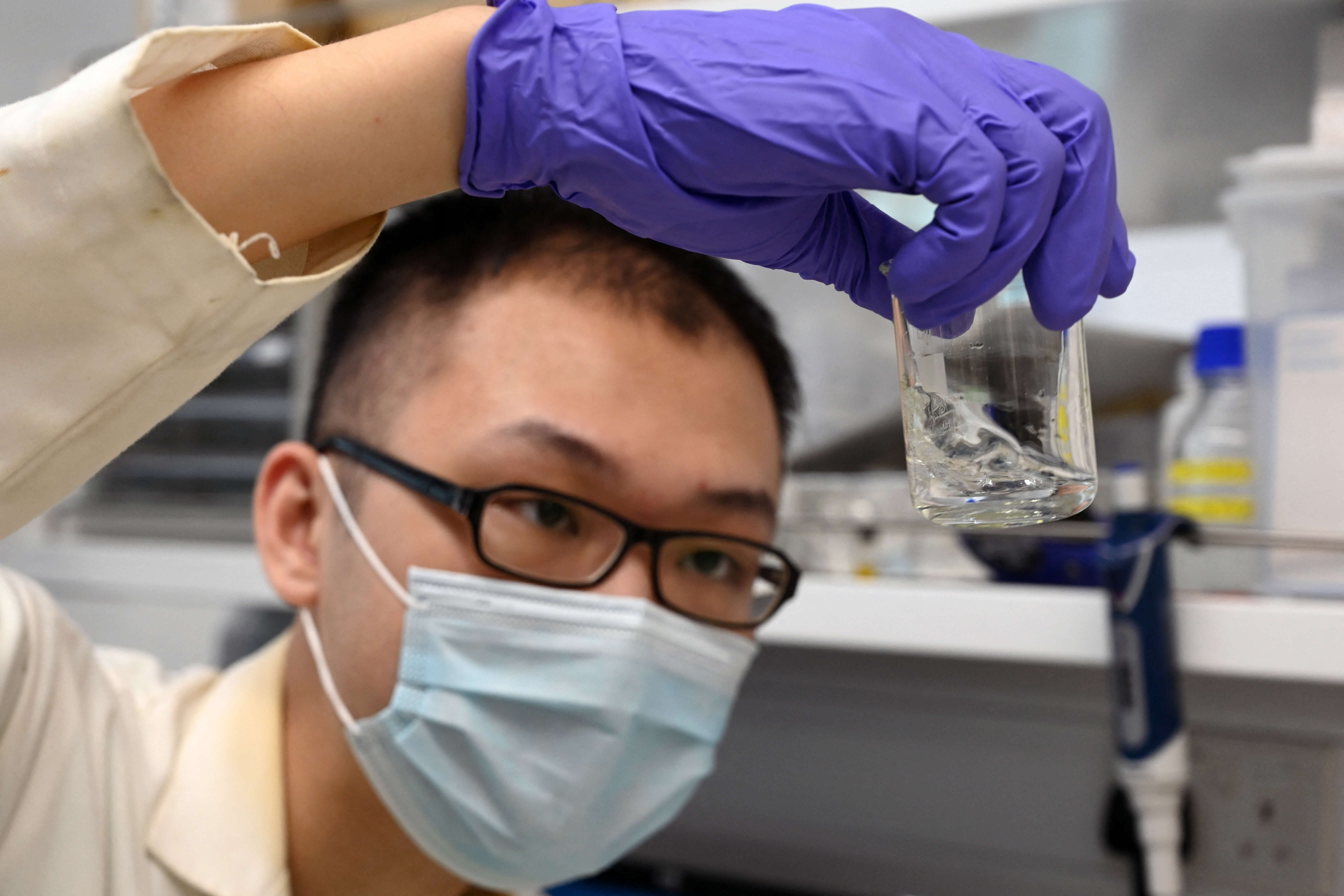
Full-time PhD programmes in the US are a few years longer compared to other countries. Source: Roslan Rahman/AFP
It goes without saying that being in good academic standing will go a long way in getting into a PhD programme right after your undergraduate studies, but that’s only part of the equation. PhD applications require more paperwork, including a statement of purpose tailored to the university and recommendation letters from your previous instructors that can vouch for your potential as a candidate.
The best way to get into your programme though? Contact the university directly to express your interest and see what funding package is available based on your circumstances. The graduate admissions page will list what is required for application, where you’ll know if you can be admitted with just a bachelor’s degree.
Although skipping a step to get a PhD sounds ideal, you need to assess if you have the capacity to undertake a high-intensity academic life. A master’s degree might cost you an extra year or two, and a few thousand off your account, but it builds a solid foundation for the kind of discipline and knowledge you will need to survive your PhD.
If you do decide to take the plunge, you might want to look out for programmes that can grant you a master’s qualification along the way, so your hard work pays off in case you choose to withdraw from your PhD in the future.
Popular stories
The ultimate guide to becoming an astronaut — the requirements, how to get them, and where to study.

9 Korean language courses to take before moving to South Korea

10 lifelong skills we wish schools had taught us

The best tips to succeed in Pharmaceutical Biotechnology, according to a graduate

Is it a good time to be getting a PhD? We asked those who’ve done it

10 PhD scholarships in the UK for international students 2022

10 great PhD scholarships in the US for international students 2022
You're viewing this site as a domestic an international student
You're a domestic student if you are:
- a citizen of Australia or New Zealand,
- an Australian permanent resident, or
- a holder of an Australian permanent humanitarian visa.
You're an international student if you are:
- intending to study on a student visa,
- not a citizen of Australia or New Zealand,
- not an Australian permanent resident, or
- a temporary resident (visa status) of Australia.
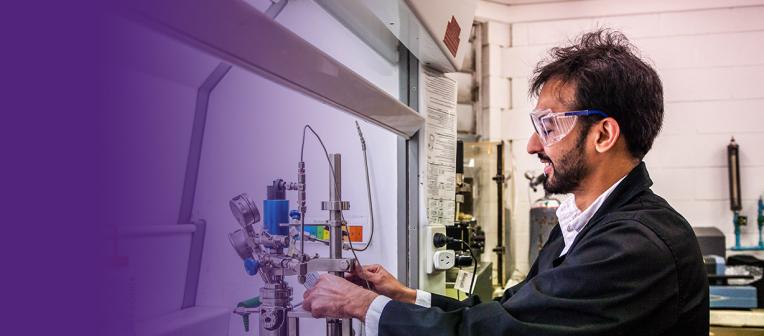
Can you do a PhD without a master’s degree?
Study tips Published 5 Apr, 2022 · 6-minute read
If you want the most straightforward answer to the question ‘can you get a PhD without a master’s degree’, it’s yes. Should you apply to study a PhD without a master’s though? Let’s unpack that.
There are quite a few entry requirements you need to meet to apply for a Doctor of Philosophy (PhD). At the core of it, all these requirements are about proving you’re ready to embark on the long (3-4 years full time) and challenging – but incredibly rewarding – process of conducting research and writing a thesis. PhD prerequisites are there to assess your preparedness for this type of study.
So, let’s have a look at what the PhD prerequisites are in Australia and the questions we’re commonly asked about them.
Can I do a PhD without a degree?
In Australia, you’ll need to have completed a degree (undergraduate or postgraduate) relevant to your proposed research topic and approved by the university to be considered as a candidate. However, the good news is, for those of you wondering ‘can you get a PhD without a bachelor’s?’ the answer is yes – it is possible at some universities.
Say you finished high school and went straight into the workforce. You built experience in your field over years of hard work. After a while, you decide that you’d like a qualification to solidify your knowledge and skills, or to upskill in your area and open even more doors. So, you apply for postgraduate studies.
Many universities in Australia will consider applicants for postgrad study (typically graduate certificates) based on proof of extensive professional experience and other post-secondary studies (certificates from TAFE, for example) in a relevant field, rather than the traditional completion of bachelor’s level studies.
Admission into a graduate certificate without a bachelor’s degree is very much dependent on your study area of choice and the institution at which you wish to study. Always check the specific prerequisites of the institution and program.
In most cases, if you want to study a PhD and you don’t have a bachelor’s degree, but you do have a lot of industry and research experience in your field, you’ll need to start your journey by enrolling in a graduate certificate and working your way up to a master’s and then a PhD. It’s possible to get into a PhD program with a graduate diploma (and no bachelor’s or master’s degree), but you’ll need extensive documentation proving former research experience to support your application – plus a decent GPA. This type of application is assessed on a case-by-case basis by some universities and can be extremely competitive.

Do you need a master’s for a PhD?
As we said earlier, no – you don’t need a master’s to apply for a PhD. And if you're wondering more specifically ‘is an MPhil required for a PhD?’, the answer is also no. It may make logical sense at face value to complete a Master of Philosophy (MPhil) and then go on to study a Doctor of Philosophy, but in reality, it tends to work a bit differently.
All these types of postgraduate degrees and higher degrees by research can be a little confusing to keep track of, so let’s break it down into simpler terms.
| Degree | Duration | Delivery |
|---|---|---|
| Master's by coursework | 1-2 years full time | Structured coursework |
| Master of Philosophy (MPhil) | 1.5-2 years full time | Self-directed research |
| Doctor of Philosophy (PhD | 3-4 years full time | Self-directed research |
So, here’s how some of the pathways through these degrees work.
- Some students decide to study and complete a Master of Philosophy, as it’s shorter than a PhD but still allows them to delve into a research project and produce a thesis (~40,000 words).
- Other students begin studying an MPhil then find they’d like to take their research further and apply to upgrade to a PhD program, adding a few more years onto their studies and producing an 80,000-word thesis.
- Many students aim big from the get-go and apply directly to a PhD program after having completed either a bachelor’s degree with honours or a master’s by coursework.
This is by no means an extensive list of ways in which you can order your studies; it’s just a few of the most common paths taken by university students interested in postgraduate studies and higher degrees by research.
The benefits of studying a master’s before a PhD
Now we’ve established that you can apply to study a Doctor of Philosophy without a master’s degree, let’s address the next big question: should you? Here are just a handful of the reasons why completing a master’s before moving onto a PhD is generally a good idea:
- It gives you a competitive edge compared to other applicants.
- It will provide you with a taste of what it’s like to conduct long-form research and reveal what it takes to be a good PhD student .
- You'll have a chance to explore a research topic to see if there’s enough scope to turn it into your PhD, or you may find offshoot topics that could be explored in more detail.
- You'll experience what it’s like to work with a supervisor and better understand if this process suits your personality type.
Can I go straight from bachelor’s to PhD?
Yes. Most universities will accept applications from students who have a bachelor’s degree with honours (typically at least IIA) as their highest level of completed study. Some universities may accept a bachelor’s degree without honours but with several years of relevant research experience, or a bachelor’s degree without honours but followed by a relevant graduate certificate or graduate diploma.
As we've emphasised above, there are definite benefits to completing further studies after your undergraduate degree to prepare you for your PhD. It’s understandable that you might want to fast-track your way to your Doctor of Philosophy, but remember that going in as prepared as possible will help you get the most out of your research.
If you don’t want to commit to a master’s program after your undergraduate degree but you still have your heart set on a PhD, talk to your course convener about fitting research units into your study plan during your bachelor’s program. Completing a graduate certificate or diploma following your bachelor’s, with a focus on the research area you wish to pursue with a PhD, will help you get a clearer idea of potential research topics too.
There are opportunities for undergraduate and postgraduate students to apply for one of UQ’s summer and winter research programs . These programs can help to boost your knowledge and skills in research and your field of study – and better prepare you for PhD studies.
When considering whether or not to apply for a PhD without a master’s degree, remember that the process is competitive, and it can take time to find the right supervisor . Having a master’s degree could put you ahead of other applicants and secure you that valued place as a PhD candidate.
Want to know more about how a PhD works? How do you find a supervisor? What are the best tips for writing your proposal? Find answers by reading our comprehensive guide: How to get a PhD.
Share this Facebook X LinkedIn Email
Related stories

How long does a PhD take?
3-minute read
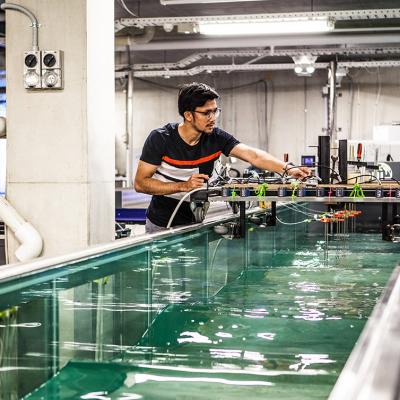
Can I do a PhD while working?
4-minute read

What makes a good PhD student?

How to get a PhD scholarship or funding

Guidance from our top admission experts — for free!

- Admit Finder
Discover Past Admits, Gauge Your Chances!
- Shortlist Builder
Personalized University Picks, Just a Click Away.
- Course Finder
Navigate Global Courses Tailored for You
- Scholarship Finder
Unlock Funding Opportunities Worldwide.

Get tailored study abroad advice.

Sign in for exclusive content!

Planning to study abroad?

Build your target shortlist and see your odds of getting into top schools with Ambitio's AI shortlist builder!

Heading Out Already?
Our Ivy League mentors and top admission experts can help with personalized tips to get you into your dream school
7 minutes read
PhD without a Masters in the USA: A Comprehensive Guide
Dirghayu Kaushik
16 August 2024
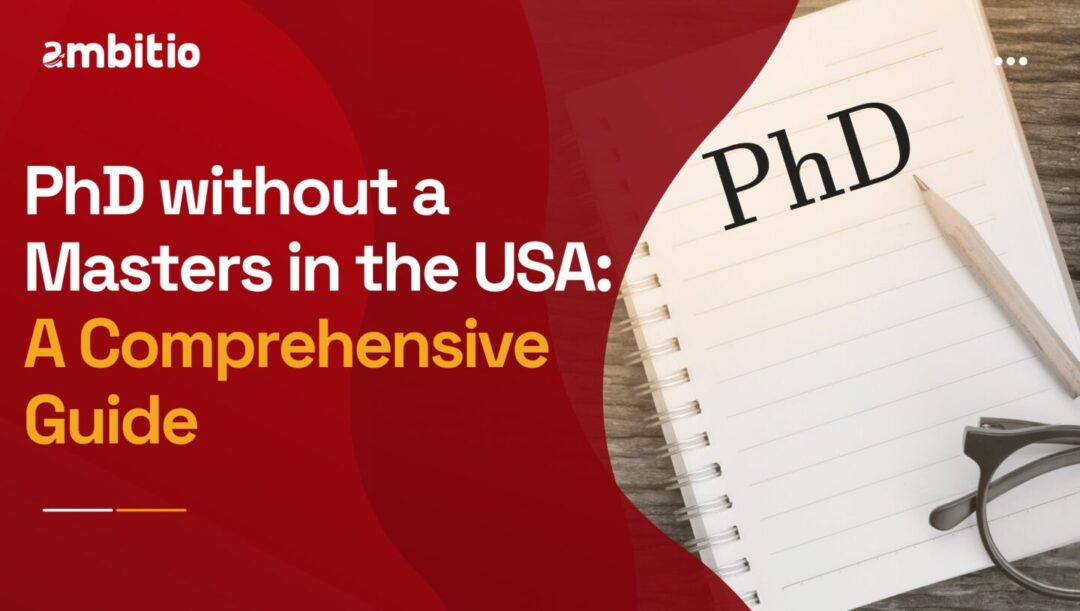
Key Takeaways:
- Direct Entry to PhD: Many U.S. universities now offer programs allowing students to pursue a PhD directly after completing their bachelor’s degree, bypassing the master’s.
- Time and Cost Efficiency: This pathway saves time and money, reducing the overall duration and cost of higher education.
- Research Focus: Direct PhD programs emphasize intensive research, allowing students to delve deeply into their field of study from an early stage.
- Stringent Criteria: Admission to these programs is competitive, with a strong emphasis on undergraduate academic performance and research experience.
- Varied by Field: Availability and norms of direct PhD programs can vary significantly across different academic disciplines and universities.
In recent years, a paradigm shift has been evident in the academic landscape. The USA, known for its rigorous academic structure, has begun to adapt and transform. Many universities now offer candidates the chance to pursue a PhD without a master’s degree.
Such an option seems tempting for those looking to save time and dive directly into research. This direct entry, or “bachelor’s to PhD,” program is a welcome change for many aspiring scholars.
Worried about the cost of Studying Abroad?
Sign up to access 25 game-changing scholarships that could cover your costs.
- Why the Sudden Shift?
The educational field is dynamic, and constantly evolving based on societal needs and scientific progress. As global challenges become more complex, there’s a demand for in-depth, specialized research.
This means a longer time spent on research rather than course completion. The direct PhD route facilitates just that – more time on research, and less on course study.
Universities Leading the Way
Several top-tier universities are at the forefront of this transition. For instance, a student aiming for a PhD in Computer Science or Bioengineering might find the direct PhD path available, whereas it might not be the case for someone seeking a degree in History or Philosophy . Always ensure you check specific departmental guidelines.
Stuck on How to Pick Your Ideal College?
Sign up to access your tailored shortlist and simplify finding your ideal college.
- Why Consider a PhD Without a Master’s Degree?
The lure of diving straight into research after an undergraduate program has several enticing advantages.
Duration and Costs
The primary advantage for many is the saved time. Traditionally, students spend two years in a master’s program, followed by 4-6 years for a PhD. By opting for a direct PhD, one might shave off a couple of years from their academic journey. This not only translates to saved time but also reduced tuition and associated costs.
Early Start to Research
Starting research early means a more extended period for deep study and the potential to make significant breakthroughs. Additionally, diving directly into research post-bachelors can lead to early publications, making the candidate’s academic profile stronger.
Admission Criteria: Candidates for direct PhD programs must demonstrate academic excellence, particularly in their major-specific courses, and have significant undergraduate research experience.
See how Successful Applications Look Like!
Access 350K+ profiles of students who got in. See what you can improve in your own application!
- Eligibility and Admission Criteria
Jumping from a bachelor’s program to a PhD isn’t a walk in the park. Admission criteria are often more stringent for direct PhD applicants.
Demonstrating Academic Excellence
Universities typically expect a stellar undergraduate academic record, emphasizing strong grades in major-specific courses. It’s also not just about grades – active participation in relevant seminars, workshops, and other academic events can enhance a candidate’s profile.
Research Experience and Recommendations
An essential criterion is demonstrable undergraduate research experience. Potential PhD candidates must have participated in significant research projects and ideally have some publications or research reports to showcase.
Furthermore, having recommendation letters from known figures in the field or previous research supervisors can considerably strengthen an application.
Program Availability: The availability of direct PhD programs varies across disciplines and institutions. For example, fields like Computer Science and Bioengineering at institutions such as MIT and Stanford offer direct PhD options, while other fields and universities might not.

Start Your University Applications with Ambitio Pro!
Get Ambitio Pro!
Begin your journey to top universities with Ambitio Pro. Our premium platform offers you tools and support needed to craft standout applications.
Unlock Advanced Features for a More Comprehensive Application Experience!

Start your Journey today
- Universities Offering Direct PhD Programs
As the appeal of direct PhD programs grows, many universities across the USA have adopted this approach, allowing students to delve into intensive research immediately after their bachelor’s.
However, the offerings and requirements vary from one institution to another, and often from one department to another within the same university. Here’s an expanded look into some of the universities leading the charge and their specific programs:
Massachusetts Institute of Technology (MIT)
MIT has always been at the forefront of innovation, and its approach to graduate studies is no different. Several departments within MIT allow for a direct PhD pathway:
- Biology: The department seeks candidates with a strong foundation in biology and other sciences. Undergraduate research experience is a significant plus.
- Electrical Engineering & Computer Science: This department often values a blend of academic excellence and demonstrable skills, such as coding or design projects.
Stanford University
Stanford is another top-tier institution where certain departments entertain direct PhD applications:
- Chemistry: Aside from a stellar academic record, the department values candidates with laboratory experience and those who’ve contributed to research publications.
- Physics: A strong foundation in physics, proven through coursework, and undergraduate research, often sets successful candidates apart.
University of California, Berkeley (UC Berkeley)
UC Berkeley has a wide array of programs, some of which allow candidates to transition directly from their bachelors:
- Molecular & Cell Biology: Here, the emphasis is on in-depth knowledge of biology and related disciplines. Candidates with research papers or projects often have an edge.
- Environmental Science, Policy, & Management: This interdisciplinary program values candidates with a broad perspective on environmental issues and ideally some fieldwork or research experience.
Princeton University
At Princeton , the blend of traditional academic values with forward thinking has led to the adoption of direct PhD programs in select departments:
- Mathematics: A profound understanding of advanced mathematics, as well as participation in relevant seminars, workshops, or Olympiads, can be beneficial.
- Neuroscience: The department seeks individuals keen on exploring the frontiers of brain science. Laboratory experience, especially with techniques such as fMRI or electrophysiology, can be a plus.
Caltech (California Institute of Technology)
Caltech , renowned for its research contributions, also offers some direct-to-PhD programs:
- Aeronautics: Candidates with a background in engineering, physics, or applied mathematics and a penchant for aerospace studies stand out.
- Biochemistry & Molecular Biophysics: Those with a deep understanding of chemistry and biology, complemented by laboratory experience, are often favored.
Tips for Aspirants
Before diving into the application process:
- Research Thoroughly: Understand the specific requirements of your desired program and department. Some might prioritize academic grades while others may emphasize research experience.
- Engage with Current Students: Connecting with PhD students can provide a clearer picture of what to expect and how to strengthen your application.
- Seek Guidance: From academic advisors to professors, gathering feedback can fine-tune your application, making it more aligned with what the department seeks.
While the option of direct PhD programs is increasingly available, it’s essential to understand that each university and department will have its specific criteria.
Being well-researched, prepared, and proactive can make a significant difference in the application process. The journey might be intense, but the rewards, both intellectual and professional, are profound.
Your gateway to unlocking premier universities! Effortlessly navigate admissions with personalized support and expert guidance. Enroll now and initiate your success story! Enroll in Ambitio Elite
Need-to-Know Before Applying
Before embarking on the application journey, it’s essential to ensure you’re a good fit. Thoroughly research the program, faculty, available resources, and funding opportunities. Getting in touch with current PhD students or alumni can provide invaluable insights.
- Challenges of a Direct PhD Path
Pursuing a PhD immediately after obtaining a bachelor’s degree is undoubtedly a unique and commendable academic route. While there are significant advantages to this path, it’s not without its hurdles.
Let’s delve deeper into the challenges that candidates may face when choosing a direct PhD path and ways to navigate these challenges effectively:
The Intensity of the Learning Curve
Entering a PhD program straight from an undergraduate degree can be a bit of a culture shock for many:
- Depth Over Breadth: While bachelor’s programs typically offer a broad understanding of a field, PhDs require intense specialization. This transition from a general to a highly specialized focus can be demanding.
- Advanced Coursework: Direct PhD students may find themselves in advanced courses with peers who have a master’s under their belt. This can make the initial semesters particularly challenging as they grapple with complex topics without the cushioning of intermediary subjects.
Adapting to the Research Rigor
PhD programs are research-intensive, which is a significant transition from undergraduate studies:
- Research Autonomy: Unlike structured undergraduate lab exercises, PhD research is often self-directed. This requires independent problem-solving, a skill that takes time to cultivate.
- Publication Pressure: There’s an emphasis on producing publishable results in PhD programs. Navigating the world of academic publishing, from selecting suitable journals to responding to reviewer comments, can be a steep learning curve.
Potential Missed Networking Opportunities
A master’s program is more than just academic coursework. It often provides students with a chance to network and form connections:
- Limited Alumni Connections: Going straight to a PhD might mean you miss out on two sets of alumni networks – one from your master’s and one from your PhD.
- Fewer Peer Collaborations: Master’s programs often involve group projects and collaborations, which can lead to long-lasting professional relationships. Direct PhD candidates might need to be more proactive in seeking such collaborative opportunities.
Social and Emotional Adjustments
The personal adjustments and sacrifices inherent in any PhD program can be particularly accentuated in a direct PhD route:
- Younger Peer Group: Being younger than many of your peers might lead to feelings of isolation or imposter syndrome.
- Lack of Break: Many students use the time between a bachelor’s and a PhD for personal development, travel, or gaining industry experience. Jumping straight into a PhD means you’re back in the academic grind without a significant break.
Navigating Financial Complexities
While getting to the finish line faster might seem cost-effective, there are financial considerations:
- Funding Challenges: Some funding opportunities or scholarships might be tailored specifically for master’s students. Direct PhD students need to be more resourceful in seeking financial support.
- Longer Commitment: If you’re self-funding, remember that a PhD is a long-term financial commitment. Ensure you have a clear understanding of costs and potential financial strain.
Strategies for Overcoming Challenges
- Mentorship: Seek out mentors early on, both within and outside your department. Their guidance can be invaluable.
- Networking: Attend conferences, workshops, and seminars to broaden your network and gain exposure to various facets of your field.
- Self-Care: Recognize the signs of burnout and stress. Engage in activities outside academia to maintain a balanced life.
- Open Communication: Discuss your challenges with your PhD supervisor. They can offer guidance, resources, or even adjust your research load if needed.
Opting for a direct PhD path is a commendable and ambitious decision. However, it’s imperative for candidates to be aware of the potential challenges. With foresight, preparation, and the right support system, these hurdles can be effectively navigated, leading to a rewarding academic journey.
Adjusting to the Research Intensity
A PhD program is undeniably intense. The depth of research, long hours in the lab or library, and the pressure to publish can be overwhelming. Candidates who haven’t experienced the intermediary step of a master’s might find this transition especially taxing.
Networking and Building Relationships
One often overlooked benefit of a master’s program is the networking opportunities it presents. Direct PhD students might need to put in extra effort to establish connections in their field, attend conferences, and collaborate on research.
The prospect of pursuing a PhD without a master’s degree in the USA is both exciting and challenging. It offers a unique pathway for ambitious students eager to delve into research.
However, it’s essential to consider all aspects, from advantages to inherent challenges, before making a decision. Research thoroughly, engage with current students, and reflect on your long-term goals to ensure this path aligns with your academic and professional aspirations.
Schedule Your Expert Call Now: Ready to navigate the college application process with ease? Schedule a call with our mentor at your convenience. We’re here to offer personalized solutions and expert guidance.
Is it common to get accepted into a direct PhD program without research experience?
While it’s possible, it’s relatively rare. Research experience is often a significant criterion for acceptance.
Do all universities in the USA offer a direct PhD after a bachelor’s?
No, while the trend is growing, not all universities or departments offer this option. Always check the specific department’s guidelines.
How can I enhance my chances of acceptance for a direct PhD?
Strengthen your profile with solid undergraduate research, obtain strong recommendation letters, and demonstrate clarity in your research goals through your statement of purpose.
Spread the Word!
Share across your social media if you found it helpful

Table of Contents
- • Why the Sudden Shift?
- • Why Consider a PhD Without a Master’s Degree?
- • Eligibility and Admission Criteria
- • Universities Offering Direct PhD Programs
- • Challenges of a Direct PhD Path
- • Conclusion
Build your profile to get into top colleges
Phone Number
What level are you targetting
Almost there!
Just enter your OTP, and your planner will be on its way!
Code sent on
Resend OTP (30s)

Your Handbook Is Waiting on WhatsApp!
Please have a look, and always feel free to reach out for any detailed guidance

Click here to download
Meanwhile check out your dashboard to access various tools to help you in your study abroad journey

Recent Blogs

Types of Financial Aid for Canadian Students studying in the USA

How to get into University of Pittsburgh? Minimum Required GPA

List of GRE Accepting Universities in USA – Minimum Required GRE Score
Find your Dream school now⭐️
Welcome! Let's Land Your Dream Admit.
Let us make sure you get into the best!
- 2024 Winter
- 2024 Spring
- 2024 Summer
Enter verification code
Code was sent to
- Our Experts
Connect with us on our social media

- Majors & Careers
- Online Grad School
- Preparing For Grad School
- Student Life
Do You Need a Master’s to Get a PhD? Not Necessarily

If you’re thinking about becoming an expert in your field by getting a PhD, you might already know how long the road ahead of you may be. Many people dream of getting a PhD, but they often get put off by the time commitment and cost involved before they can even get started.
After all, PhDs can take anywhere from 3 to 8 years to finish — and in some cases, even more. Getting a PhD can be quite a difficult endeavor for people who have jobs , families, and other financial responsibilities to balance along the way.
If you want that coveted PhD without compromising your other responsibilities, you might find yourself asking, “do you need a master’s to get a PhD?”
The short answer is: not necessarily .
Although the traditional route to a PhD often involves getting a master’s degree first, many direct to PhD programs allow academics to skip an MA altogether. Even those with bachelor’s degrees have a decent chance at getting into a PhD program. However, going directly for a doctorate still has its advantages and disadvantages.
Table of Contents

How to Get a PhD Without a Master’s Degree
The minimum requirement to be considered for a PhD is a bachelor’s degree, but your chances of getting accepted will depend on how well you tender your application .
Educational institutions won’t freely advertise that they offer doctorates without master’s degrees. It becomes your task to look into the core beliefs of the universities you’re interested in to see whether you have a chance at success.
When putting together your application, you’ll have to check the universities’ requirements to ensure that your previous academic performance qualifies. The better your qualifications and recommendation letters are, the higher your chances of being considered.
Of course, you may be able to eliminate many of your troubles by going the direct to PhD route, which takes you from undergrad straight into a doctorate program.
PhD Without a Master’s – How Does it Work?
PhD programs that consider candidates who don’t already have a master’s will expect you to have at least a bachelor’s degree.
The expectation can vary depending on the doctorate, but the bare minimum requirement is generally:
A three-year undergraduate degree in a related discipline for STEM PhDs
A relevant four-year undergraduate degree for PhDs in the arts and humanities.
To be considered for a PhD without a master’s, you’ll also need to have a strong academic record from your undergraduate studies. Universities are highly selective when admitting PhD candidates without master’s, so you’ll need to show academic transcripts with a high GPA.
The first way you can study a PhD without a master’s is by applying to a program that allows a direct route from bachelor’s to PhD. There are a number of doctoral programs, especially online ones, that only require you to have an undergraduate degree to apply. Be aware that even if a master’s is not required, you’ll need to submit a strong application, including a compelling research proposal, in order to stand out from other applicants, many of whom may have master’s degrees.
Even if the program normally requires a master’s as a prerequisite, you may be able to get around this by first pursuing an MPhil. Under this process, you’re given a year to prepare a thesis, which outlines your initial research and how you plan to expand on it for a full PhD dissertation. If successful, your MPhil will be upgraded to a doctorate, you’ll become a PhD candidate, and eventually be able to earn a PhD. If you don’t demonstrate strong enough research skills, you may also pass and be awarded an MPhil degree, but won’t be upgraded to a PhD student.
Another option would be to pursue an integrated PhD program, sometimes known as an integrated master’s degree. These are specific courses offered by some colleges that combine a master’s and PhD: if you’re successful, at the end of the course you’ll be awarded both qualifications. Typically, integrated PhD programs last for four years, covering a one-year master’s and a three-year PhD.
How Long Does it Take to Get a PhD Without a Master’s?
Studying a PhD program without a master’s will typically add an extra year to the usual timeline , as you’ll need to spend an additional year either completing an MPhil or as part of an integrated PhD program. Therefore, as most doctorates take three to five years to complete, a PhD without a master’s will usually take between four and six years.
On the other hand, if you choose a PhD program that only requires a bachelor’s degree to join, it will only take the standard length of time for that program, usually three to five years.
Which Universities Offer PhDs Without a Master’s?
Unfortunately, most universities don’t advertise PhD programs without master’s, as candidates are generally accepted on a case-by-case basis. Furthermore, admission requirements for PhD programs are usually set by the school or department, so even if one PhD program accepts candidates without master’s degrees, this may not be the case across the university.
If you want to pursue a PhD without a master’s, you’ll need to contact the admissions committee of the programs you’re interested in, and check their requirements.
Is it Possible to Get a PhD Without a Bachelor’s Degree?
It is not impossible to get a PhD without first having a bachelor’s degree, but it is very uncommon. In some rare cases, universities may accept candidates for doctoral programs with extensive professional experience in lieu of an undergraduate qualification.
If you’re able to demonstrate significant contributions to your field through either work or self-directed study, and that you’ve directly contributed new knowledge to the discipline, you may be accepted into a PhD program. You’ll be more likely to be accepted if you’ve been published, preferably multiple times, and have a number of professional accreditations.
Advantages of Going Straight to PhD
The biggest advantage of bypassing a master’s degree is easily the amount of time and money you can save in the process.
An MA can take as short as a year or as long as three to obtain. And when doctorates usually take anywhere from 5-7 years, shaving 1-3 years off can make a huge difference — especially for busy people who want to get ahead in their careers quickly.
Of course, you also won’t need to pay thousands of dollars in tuition fees for an MA. These savings alone are usually enough to convince many people to go for a PhD without master’s degrees slowing them down along the way.
Other benefits you may encounter are:
- Grants and Stipends – Another advantage of joining a direct-entry doctorate program is the possibility of obtaining outside funding (if you qualify). Many PhD programs offer students financial assistance in the form of partial funding or full tuition waivers. If you can benefit from financial aid, you might be glad to know that some programs also offer stipends on top of the tuition grants.
- Research Projects – As a doctoral candidate, you might want to start or join certain research projects that may be time-sensitive. In cases like these, it’s usually advisable to go directly for PhDs to increase your chances of securing your dream project. If the project you’re looking at is a long-term endeavor, a doctoral program may also be the best route to allow for more in-depth fieldwork and experiments during your studies.
- Less Stress and Hassle – Choosing not to go for a master’s degree might help eliminate stress and hassle, such as school applications and potential relocations. Going direct to PhD means you’ll likely only need to move once (if at all) to your chosen school’s area.
Disadvantages of Skipping a Master’s Degree
Although the answer to the question “can you get a PhD without a master’s?” is a resounding yes, it doesn’t always mean that it’s the right choice for everyone.
Going from undergraduate studies straight into a PhD program can be quite a huge adjustment. The program might suddenly expect you to get familiar with new techniques, work, and professional relationships — and fast!
This adjustment period may put you at a disadvantage compared to other doctorate candidates who have previously completed a master’s degree.
Other hindrances you might encounter are:
- Difficulty During Applications Process – PhD programs are competitive and often only take the best-qualified applicants. If you’re competing with other students who have master’s degrees, it may affect your chances of securing a spot. However, if you go for a direct to PhD program (undergraduate straight into PhD), it may be possible to avoid this problem.
- Less Experience in Research and Dissertation Work – A thesis or dissertation is a major requirement of completing a master’s degree. Skipping an MA means you’re missing out on all of the experience you’d otherwise get in research and fieldwork. You’ll also have less experience actually writing a dissertation.
- Less Time to Confirm Your Interests – Working on your master’s thesis will allow you to select a topic that interests you. You usually spend about a year working on your thesis, during which you can explore the topic further to confirm whether it’s really what you want to go into. By skipping the MA, you’re potentially giving up the chance to verify if the field truly interests you before you fully commit to it for the duration of your PhD. Going straight into a doctoral program may also mean that you miss out on the chance to choose your own topic and create your own research proposal.
- Missing the Opportunity to Work with a Thesis Supervisor – When doing a master’s degree, postgraduate students work with a thesis supervisor who provides guidance and advice for their projects. Going direct to PhD means you miss out on the experience of working with a supervisor and finding the right types of communication, schedules, and professional relationships for your needs. This means you’ll have to figure all of this out during your doctorate program, which can add to your stress.
So Can you Get a PhD Without a Master’s? Yes, But Not Always
You don’t necessarily need a master’s in order to pursue a PhD. Some PhD programs accept candidates with a bachelor’s degree only, or you may be able to get around a master’s prerequisite by signing up for a MPhil or an integrated PhD program.
The “ideal” doctorate program doesn’t come along often. If you find yourself faced with a choice between pursuing a master’s degree or trying to get into your dream doctoral program, you might want to skip the master’s degree altogether.
Although you may miss out on an MA qualification, often, a finished PhD supersedes the need for one anyway.
Getting a PhD without a master’s degree can be difficult, but it’s certainly not impossible! For more inspiration, take a look at our guides to the highest-paying PhD degrees and the best one-year online PhD programs .
Frequently Asked Questions
Can you skip a master’s and get a phd.
Yes, there are a few ways you may be able to get into a PhD program without completing a master’s first. You could opt for a PhD program that doesn’t require master’s as a prerequisite, or go for a MPhil or integrated PhD program. However, keep in mind that not all universities or programs allow you to apply for a PhD without a master’s.
Can I apply for a PhD after my bachelor’s?
In some cases, you can apply to a PhD program as soon as you’ve finished your undergraduate degree. Some doctoral programs accept candidates with a bachelor’s degree only, though you’ll probably need to have an excellent academic record and a strong research proposal.
Is a PhD better than a master’s?
PhD and master’s degrees are valuable in different ways, so it’s not really fair to say that a PhD is better than a master’s. Although a PhD is a more advanced degree, there are roles and professions that would prefer you to have a master’s rather than a PhD. Master’s programs usually have a more practical, real-world focus, which can be more useful for many roles in the business, non-profit, and government sectors. On the other hand, a PhD is strongly rooted in in-depth research, so prepares candidates to work in research and academia.

Lisa Marlin
Lisa is a full-time writer specializing in career advice, further education, and personal development. She works from all over the world, and when not writing you'll find her hiking, practicing yoga, or enjoying a glass of Malbec.
- Lisa Marlin https://blog.thegradcafe.com/author/lisa-marlin/ 30+ Best Dorm Room Essentials for Guys in 2024
- Lisa Marlin https://blog.thegradcafe.com/author/lisa-marlin/ 12 Best Laptops for Computer Science Students
- Lisa Marlin https://blog.thegradcafe.com/author/lisa-marlin/ ACBSP Vs AACSB: Which Business Program Accreditations is Better?
- Lisa Marlin https://blog.thegradcafe.com/author/lisa-marlin/ BA vs BS: What You Need to Know [2024 Guide]
How Long Does it Take to Get GRE Scores?
How to get into ivy league graduate school: complete 2024 guide, related posts.

- How Many Grad Schools Should I Apply To?
![can you do a phd without masters When to Apply for Grad School: The Simple Guide [2026/2027]](https://blog.thegradcafe.com/wp-content/uploads/2021/08/When-to-Apply-to-Grad-School-350x250.png)
- When to Apply for Grad School: Easy Monthly Timeline [2025-2026]

- 30+ Best Dorm Room Essentials for Guys in 2024

- Best Laptop for Programming Students in 2024

The Sassy Digital Assistant Revolutionizing Student Budgeting

The Best Academic Planners for 2024/2025

Leave a Reply Cancel reply
Your email address will not be published. Required fields are marked *
Save my name, email, and website in this browser for the next time I comment.
Recent Posts
- Last Mile Education Fund Paves the Way for Tech Students, Offers Lifeline Grants

© 2024 TheGradCafe.com All rights reserved
- Partner With Us
- Results Search
- Submit Your Results
- Write For Us
- Best Online Programs
- Best Campus Programs
- Behavior Psychology
- Clinical Psychology
- Counseling & Mental Health
- Developmental Psychology
- Educational Psychology
- Forensic Psychology
- General Psychology
- Health Psychology
- Industrial/Organizational
- Marriage Family Therapy
- Social Psychology
- Social Work
- Educational Psychologist
- Forensic Psychologist
- Clinical Psychologist
- Family Psychologists
- Marriage Family Therapist
- School Psychologist
- Social Psychologist
- School Counselors
- Neuropsychologist
- I/O Psychologist
- Sports Psychologist
- Addiction Counselor
- Mental Health Psychologist
- Counseling Psychologist
- Occupational Psychologist
- Child Psychiatrist
- Connecticut
- Massachusetts
- Mississippi
- New Hampshire
- North Carolina
- North Dakota
- Pennsylvania
- Rhode Island
- South Carolina
- South Dakota
- West Virginia
- PsyD vs PhD
Getting Your Psychology PhD or PsyD Without a Master’s
Completing a doctoral degree in psychology can be a crucial educational step toward a challenging but rewarding career in the field, whether working with patients or contributing to the field in other ways.
With multiple possible degree paths that end in similar outcomes, it can be difficult for students to understand the best route to take, depending on the education they already have. Specifically, for students who have only a bachelor’s degree, many worry their options for a psychology Ph.D. or a Psy.D. may be limited.
So let’s explore what students need to know about getting a psychology Ph.D. or Psy.D. without having a master’s degree.
Psychology Doctorate Options
At the end of both a Doctor of Philosophy (Ph.D.) in Psychology and a Doctor of Psychology (Psy.D.), an individual will have earned a doctorate and, depending on their personal preferences and professional goals, could use the “Dr.” title. But the details of the degrees are quite different, and which is right likely will depend on the individual and their career dreams.
In general, Psy.D. degrees are more appropriate for those who want to work directly with patients or clients, while Ph.D. degrees may appeal more to those who want to work in academic research to help advance understanding of human behavior.
SEE ALSO: Online Accredited PsyD Programs
Of course, that’s a guideline rather than a rule, and students who earn either type of degree can work in many different areas of psychology, or may earn enough experience and education to overlap a few areas of the field.
Importantly, though, it’s more common for Psy.D. tracks than Ph.D. tracks to include supervised professional experience as part of the doctoral program, which may impact a graduate’s ability to earn professional licensure (more on that later).
Starting Point
Regardless of what comes next, prospective psychology doctoral students will need to earn a bachelor’s degree. Ideally, they’d major in psychology in college, though there are a handful of other subjects that could suffice, depending on their doctoral program.
These include:
- Social work
- Anthropology
Many doctoral programs will accept applicants who have only a bachelor’s degree, but there are several considerations that may impact whether doctoral candidates can apply with only an undergrad degree:
- Length of doctoral program: Shorter Ph.D. or Psy.D. programs, meaning those that are designed to be completed in only a few years, will usually require students to complete a master’s degree before they apply. For example, an optional completion timeline offered in the Psy.D. program at the University of Indianapolis accepts only those applicants who have already completed a master’s degree in the field, and the admissions office prefers those who already have some practical experience under their belts. UIndy’s 3+1 track can be completed in only four years, while most psychology doctorates will take at least five and sometimes closer to seven years.
- Master’s en route: In most longer-timeline programs, students will earn a master’s degree on their way to getting their doctorate. For example, the Tufts University Ph.D. in Psychology will last at least five years, and students will complete a master’s degree at the end of their second year in the program.
- Prior coursework: In many psychology doctoral programs, students aren’t required to have majored in psychology at any level but rather it’s necessary for them to have completed certain coursework integral to the study of psychology. At the Rutgers Graduate School of Applied and Professional Psychology , Clinical Psy.D. applicants are required to have completed undergrad courses in introductory psychology, statistics, abnormal psychology and biological bases of psychology, in addition to at least one course in cognitive, developmental and/or social psychology, psychology and perception, conditioning and learning, and psychology of personality.
SEE ALSO: List of Combined Master’s and PsyD Programs
In every state, a series of rules and guidelines apply to the licensure of psychologists. States vary quite dramatically in what they require, but a psychology doctorate is generally the most important educational step.
However, professional experience is also required in every state, usually both before and after earning a doctorate. That means that students who attend Psy.D. or Ph.D. programs that don’t include a supervised professional experience period, such as an internship or other professional practicum, may not satisfy the licensure requirements in their state.
Additionally, many states require students who attend programs that are not accredited by the American Psychology Association to provide a detailed list of all coursework at the doctoral level, and students may have to take remedial graduate courses if their programs don’t meet the standards.
Earning your doctoral degree in psychology, whether by completing a Ph.D. or a Psy.D., is the single best way to earn licensure and become a professional psychologist. While there’s no single possible way of getting there, students who don’t have a master’s degree, and have no need to earn one, likely will find many options for doctorate programs.
- What is it Like to Do a PhD Without a Masters?
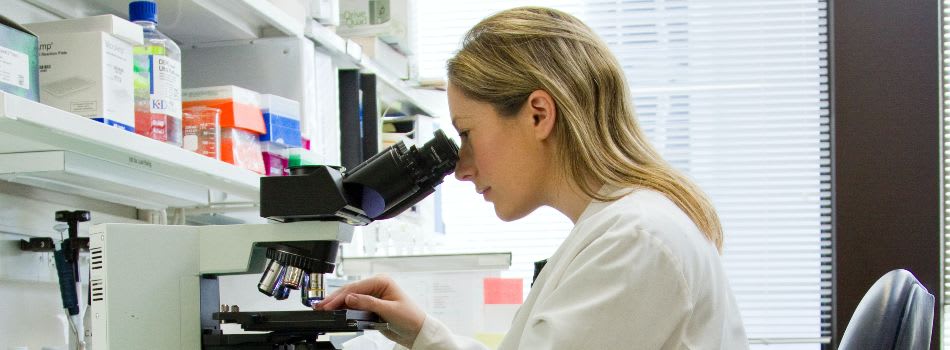
If you’ve always wanted to do a PhD, you might be wondering if you can get there without spending more time and money in university.
My journey to a PhD was a little different. Instead of a Masters, I did an Industrial Experience placement during my undergraduate in Biomedical Sciences. I spent 14 months working a 9-5 in a research and development lab. It was a great opportunity to experience working life, without the pressure of exams or coursework. This glimpse of life beyond studying helped put my final year of university into context and I felt better informed to decide my next steps. This turned out to be applying directly to a lab-based PhD project on a Doctoral Training Programme (which I was accepted onto).
There are numerous benefits of having professional experience before starting a PhD, but there are also some important things to consider as well!
The benefits of professional work experience
#1 skills learned during professional experience can really benefit a phd.
The world of professional work and academia may appear to be different, but the skills you gain from work experience can easily be applied to a PhD. In particular, strong transferable skills can really prepare you for the parts of a PhD outside of your research.
This might look like:
- Better time management and project management skills from working in an environment with shorter deadlines. This can prepare you for balancing independent work during a PhD with the many other demands (like teaching and paper writing).
- Experience of training colleagues which could prepare you for training undergraduate or Masters students in your academic group.
- Presentation skills from talking in team or company meetings is useful preparation for presenting to your supervisor, academic group or even at conferences.
#2 Good working habits
A life in academia often conjures images of long hours and even working through weekends. But it doesn't have to be this way! Gaining experience outside of academia can show you how to keep your work within more typical working hours and days. A company will also want you to plan for annual leave throughout the year. This perspective can help you maintain and stick to a good work life balance and prevent burnout during your PhD .
#3 Prepared for life beyond a PhD (or instead of. . .)
The experience of working life can help you decide to do a PhD for the best reasons, such as pursuing a subject you are passionate about or as a way to further advance towards your career goals. You will understand what life could look like after completing your PhD and likely have professional connections that could be useful in finding a job post PhD.
But there are several considerations to doing a PhD without a Masters
A Masters is a great way to experience postgraduate life and academic research in your field of interest without committing to a full PhD project. This can be useful as there are several differences between professional work and academia that are more easily understood from the experience of doing a Masters.
#1 Specific research skills
The skills you learn during a Masters could be directly applicable to a PhD project and put you in the best location to connect with supervisors in the field you want to study. This experience is highly beneficial in subjects where you write your own research proposal , particularly the Arts and Humanities subjects.
#2 The academic way of working
The days in academia can look different to those in the workplace. They are more likely to have no set working hours and more independent work. There is more time to get lost in the work as deadlines are often far into the future. This can feel different to working in a wider team with more meetings and shorter deadlines, which is more common in professional workplaces. A benefit of this goal-oriented way of working and regular contact with your supervisor is that it can help you to stay focused on the outcomes of your PhD and help you to work more efficiently. However, a Masters could help you to understand whether you would work well in the academic environment.
#3 Your motivations are different
In academia, work is usually driven by interest, not by importance or deadlines. The subject area is niche and the aims can evolve significantly over the duration of the project, so you have to become comfortable not knowing where the work is going. Unlike professional work, there isn’t an external structure or corporate goals to help guide and support your direction. A PhD supervisor will likely expect you to develop and lead the project aims. Although a Masters is over a shorter period of time, it can expose you to this and help you to learn whether you would feel comfortable with this style of working.
How to fill the (possible) gap between professional experience and a Masters
Without the experience of academic research during a Masters, you may find you have a steeper learning curve during the first year of your PhD . Some of these skills include how to maintain the student-supervisor relationship, how to conduct original research and write up your findings.
If everyone around you has that academic experience through a Masters, it might lead you to feel a little out of the loop or even as though you are an imposter in the academic environment. It is possible to work through this and have a great PhD, and many with a Masters still experience these feelings.
There are several ways to fill this possible experience gap. A PhD is a time to learn new skills, so finding a supportive supervisor who understands your background can help you to adjust into this new role. You could also enrol on an Integrated PhD programme that provides a year of research skills training before starting your three year PhD project. In addition, many universities run workshops for PhD students to connect and learn new skills alongside their research – these can include everything from highly technical skills to more general literature review and writing skills.
A reflection of my Industrial Experience year before starting my PhD
The transferrable skills and good working boundaries I learned during my Industrial Experience year have helped me greatly during my PhD and made me feel more prepared for my future career. Although this experience was relevant to my PhD, I had to learn new methodologies (but this could be the case with a Masters degree too) and consciously adapt to the academic way of working. I used my DTP training year to develop my research skills and I was open with my supervisor about what areas I needed training in throughout my PhD.
Our postgrad newsletter shares courses, funding news, stories and advice
You may also like....

The PhD is the most common variety of doctorate, but others are awarded in specific disciplines or sometimes particular countries.

Joint PhD programmes involve collaboration between two (or more) different universities. So how does that work? Who can apply? And what are the advantages (and disadvantages) of researching in this way?

Integrated PhD programmes consist of a one-year Masters followed by three years of PhD research. Find out more about what it's like to study an integrated PhD, how to apply and the funding options available.

Thinking of applying for the Doctor of Engineering (EngD)? Our guide covers everything you need to know about the qualification, including costs, applications, programme content, and how it differs from a PhD.

A PhD isn't the only option for postgraduate researchers. Our guides explain professional doctorates, joint degrees and compare other qualification types.

How does the value of an MPhil compare with a PhD, and why might you choose the Masters over the doctorate?
FindAPhD. Copyright 2005-2024 All rights reserved.
Unknown ( change )
Have you got time to answer some quick questions about PhD study?
Select your nearest city
You haven’t completed your profile yet. To get the most out of FindAPhD, finish your profile and receive these benefits:
- Monthly chance to win one of ten £10 Amazon vouchers ; winners will be notified every month.*
- The latest PhD projects delivered straight to your inbox
- Access to our £6,000 scholarship competition
- Weekly newsletter with funding opportunities, research proposal tips and much more
- Early access to our physical and virtual postgraduate study fairs
Or begin browsing FindAPhD.com
or begin browsing FindAPhD.com
*Offer only available for the duration of your active subscription, and subject to change. You MUST claim your prize within 72 hours, if not we will redraw.

Do you want hassle-free information and advice?
Create your FindAPhD account and sign up to our newsletter:
- Find out about funding opportunities and application tips
- Receive weekly advice, student stories and the latest PhD news
- Hear about our upcoming study fairs
- Save your favourite projects, track enquiries and get personalised subject updates

Create your account
Looking to list your PhD opportunities? Log in here .

- Skip to primary navigation
- Skip to main content
- Skip to primary sidebar
- Skip to secondary sidebar
- Skip to footer
career-advice.jobs.ac.uk
A PhD Without A Masters Degree

The PhD usually came after the Bachelor’s degree for many years in the United Kingdom. There was no real need to successfully gain a Master’s degree before embarking on this mammoth task of empirical research. Whilst some undergraduate degrees still lead to a Master’s qualification, and many people still complete Master degrees, it is possible to do a PhD without a Masters degree .
Firstly, your creative ideas are novel which allows for innovative, fresh approaches, in addition to exerted interest and enthusiasm for an area of study. Secondly, a Master’s degree can be quite expensive and although there are bursaries and schemes available they often still require costly personal financial contributions. Thirdly, pursuing a PhD without a Master’s degree reduces the amount of time on your studies, allowing you to follow a desired career path that motivates and excites you.
Disadvantages
The Master’s degree exists to show that the student can study at a higher level and this qualification allows you to practice the necessary research skills. This also determines if committing to a large research project is right for you. Additionally, the Master’s dissertation forms a part of the PhD in several British universities, so you are potentially gaining one to two extra years to make your original contribution to the field of study.
Applications
As with any PhD application , it is important to check your eligibility with the universities you have chosen to apply to. Different institutions have varying regulations, and in some cases, a Master’s degree might be compulsory. Also, make sure you have lots of evidence in your application about why you would make a good doctoral student by presenting concrete examples of your work at the equivalent of Master’s degree level. Additionally, be clear that you are motivated and determined to add to a body of knowledge through innovative, empirical research that requires stamina, hard work, determination and collaboration.
Coping strategies
The first few months can be overwhelming, but it is important to remember that you have been accepted as a doctoral student. This confirms that a panel of experts believe that you can achieve such a prestigious degree.
In your first term try and reread your research proposal once a week and review it critically. The nature of research is that it changes but it is also useful to remember what you proposed to do. Critical thinking is essential throughout the process.
Avail of the PhD support within the university. Regularly meet with supervisors and other doctoral researchers as support is necessary during this journey, especially in year one. Sign up to university workshops about PhD research – many run one-day skills sessions covering everything from communication to project managing. As a PhD student, you are part of a community of other doctoral researchers and this can be a great source of advice and wisdom, plus a great way of meeting new people.
In your first term, you should have regular and consistent supervision meetings. This allows your research team to set clear time goals and confirm milestones which you can work towards.
And remember, with consistent hard work, dedication, determination, collaboration and a critical mind, you will achieve your PhD .
Find your PhD here .
What is a PhD and Why Should YOU do one?
What did you think of our article? - please rate
Share this article
Dr Denise White FRSA
Dr Denise White FRSA is a multi-award-winning intellectual disability and music expert. Having over 25 years’ experience in the field of early years, primary, post-primary, special educational needs, further and higher education, Denise is known for her innovative and creative teaching methods that transforms lives. She is an advocate for inclusive and community-based ethical learning and teaching models.
She is a passionate education advocate with the talent to develop inspiring hands-on lessons that will capture a student’s imagination and breed success.
Known as ‘The Music Doctor’, Denise is an Author at Bookhub Publishing. Her Music Doctor Series will launch in March 2019. Denise is also a Speaker, Trainer, Consultant, Mentor and Researcher.
Web: www.themusicdoctor.co.uk
Twitter: @_TheMusicDoctor
Reader Interactions
You may also like:.
21st April 2020 at 11:04 am
To whom it concerns. During this enforced Covid Lockdown I explored the possibility of undertaking a Master’s in English Literature by distance learning. My Thesis has explored the topic of “Discrimination of Women in the Literature because of their gender”. As yet I am not affiliated with a University as my exploration is in earl. y stages. I have a Primary Honour’s Degree from my local University in Galway, Ireland. My query is can I bypass the Master’s and undertake a P.H.D in English Literature? I am familiar with the steps necessary to undertake the proposed course of study.
19th December 2020 at 6:03 pm
Good evening. Hope you are doing well inshaAllah. My wife wants to apply for a PHD program nearby london area. Do you have any suggestions on where to apply? She will need to apply for a student visa first in order to enrol into a graduate school. How can she apply for a student visa ? What type of governmental funding is available to her wife? My wife is a USA citizen and she already has her undergraduate degree from New York university. Plz advise me which university will be the best for my wife to enrol into a PhD program.
3rd March 2021 at 5:57 pm
I want to register fie for PHD, i only have law degree, i have no Masters degree
15th January 2022 at 3:30 pm
I want to apply for PhD. I have already have and degree and postgraduate diploma. Please advise
15th January 2022 at 3:32 pm
I have already a degree and a post graduate diploma
11th April 2022 at 10:13 am
Please advice to me where to start. I have degree in Public Administration and Political since graduated 2012 on South East European University in Skopje, in 2012 I make NARIC UK Recognized my foreign degree in UK comparable. In 2018 I have applied on South East European University Master in Business Administration and Management – Sub field Management. And I have finished all my exams on master degree but started this Pandemic Period with covid19 and I have no chance to make defend my master decertation in public defend. I am here in UK more then 10 years I am passion to study. I have EU Settled Status. I was in search for Integrated PhD ( Master and PhD ) in one. Because I have transcript but I don’t hold certificate in Master degree make me break this process. Please advice to me how to continue.
4th February 2023 at 6:47 pm
I am interested in completing a PhD, but only have a Social Science BA 2:1. Is this possible?
14th November 2023 at 2:38 pm
Firstly, you will have to improve your spelling and grammar before you apply for a PhD degree (even more so since you are a lawyer)!!!
Leave a Reply Cancel reply
Your email address will not be published. Required fields are marked *
Save my name, email, and website in this browser for the next time I comment.
Please enter an answer in digits: 20 + 20 =
This site uses Akismet to reduce spam. Learn how your comment data is processed .

The Savvy Scientist
Experiences of a London PhD student and beyond
Can You Get a PhD Without a Master’s?

If you’re currently studying for your bachelor’s degree and are interested in doing a PhD, you may be wondering: can you get a PhD without a master’s?
The Benefits of Doing a Master’s Degree Before a PhD
A master’s degree allows someone to gain additional skills, research experience and domain-specific knowledge. When a supervisor is looking for potential PhD students, amongst other things they want to see that a candidate has:
- Interest in the subject
- Research experience
- Subject knowledge
Suitability for a PhD does not always require a master’s . But it is a convenient way to provide evidence for your suitability and commitment to research.
Therefore from a supervisor’s perspective, a master’s can provide evidence of these attributes. Having a master’s gives a little more assurance for the supervisor that you’re prepared for the work involved with a PhD. But not having a master’s absolutely does not have to be a barrier!
Already carried out a long research project as part of your bachelor’s degree and want to do a PhD in an area you have knowledge in? You may be able to convince a supervisor that you’re already prepared.
A few less substantial reasons people sometimes consider doing a separate master’s are:
- If for any reason your performance during the bachelor’s degree wasn’t ideal, doing a separate master’s provides another qualification to be assessed against.
- If you’re transitioning to a different research area it is the obvious way to gain knowledge.
- A chance to experience another [potentially more prestigious*] university.
My experience: Early on in your undergraduate degree and interested in doing a PhD? I thoroughly recommend getting as much research experience as possible. Even if you don’t have the opportunity to undertake much research during your course, UROPs are a fantastic way to spend your summer. During my PhD I had help from a few UROP students. One of them has even co-authored a paper with me. I wish that I had done one as an undergraduate!
*I really dislike the idea of considering the prestige of a university and the associated meritocracy , but sadly there is no getting away from the fact that it boosts career prospects.
So Can You Get a PhD Without a Master’s?
If you’re starting to look at PhDs and don’t yet have a master’s, there are two things you can do to get an idea of whether or not you’re likely to need a master’s first:
Check Advertised PhDs
Looking at a PhD advert such as via FindAPhD.com? Check the listed candidate requirements on the advertisement.
Sometimes a master’s isn’t mentioned:

Sometimes doing a master’s is a suggested advantage:

Here is a post detailing how you can find available PhD projects .
Ask the Academic
The most definitive answer you’ll receive for whether you can get a PhD without a master’s will be by contacting supervisors directly.
Often as soon as you start a conversation with potential supervisors they’ll ask to look over a copy of your CV. There is nothing wrong with being bold and checking whether you’re currently qualified enough to stand a competitive chance of getting a PhD.
My experience: When I was considering PhDs I emailed an academic saying I was interested in applying for a project with them but was worried I didn’t have relevant experience. Within 24 hours he had replied saying “Unfortunately, I’m not confident that you’d be selected if you applied as other candidates who have expressed an interest in applying had more relevant experience” Although disappointing, it’s much better to find this out quickly so that you can move on. I already had a master’s but not in a relevant area. If I’d desperately wanted to pursue this research area an obvious means to transition across and gain experience would have been with a master’s.
My Observations
I don’t believe that there are strict guidelines stating that you have to have a master’s. As shown in the adverts above, it is oftenseen as an advantage but is rarely strictly necessary.
Of the people I worked with during my PhD, not everyone had done a master’s.
Most of the people who had a master’s did it as a 4-year integrated master’s. This is common in certain sciences and engineering, and is exactly what I did . However, several people had not done a master’s before starting their PhDs. Including the guy I sat next to for all of my own PhD at Imperial.
Getting a bachelor’s degree outside of the UK will typically take one or two years longer than in the UK. Therefore international students in particular may be able to evidence their experience without a master’s.
Fancy getting a master’s as well as a PhD? Read on to find out how you could get paid to do both!
Don’t Yet Have a Master’s? Consider CDTs!
What are cdts.
In the UK there are many Centres for Doctoral Training (CDTs, sometimes known as DTCs) and it is worth drawing your attention to them if you don’t already have a master’s degree. CDTs offer combined funded Master’s + PhD programmes. You’ll be part of the relatively rare breed getting paid to do a master’s!
These centres are funded via the research councils and provide training for students around a certain theme. FindAPhD.com has a nice post which includes links to funded CDT projects . CDTs cover a huge range of themes. For example just within AI research there are 16 CDTs all for different themes:

The idea is that students from different backgrounds can get training and become proficient at helping to solve problems around the central theme of the CDT. In the first year you’ll have a mix of lectures and smaller projects to get a taste of different research topics. During the first year you’ll also choose your PhD topic. You will then spend three years working on that project before submitting your thesis.
Pros and Cons of CDTs
The advantages are:
- You’re part of a cohort so will likely have a greater sense of community and support versus a typical PhD project
- You get training and will learn new skills before deciding on a PhD project
- If you know you want to work in a certain research area but don’t yet know exactly what project you want to work on yet
- You get both a PhD and a master’s at the end, all of which is funded!
Potential disadvantages I can think of for doing a PhD through a CDT are:
- Taking a year longer than a normal PhD if you already know what you want to work on
- Your PhD position with a certain supervisor isn’t definite before you start. I’ve anecdotally heard of issues where many of the students in the cohort want to work with the same supervisor and of course not all of them can. On the flipside the flexibility in supervisors is an advantage for many.
How much do students earn doing a master’s and PhD through a CDT? Funding for students at CDTs is covered here . UKRI, the body that funds all nine UK research councils , has some case studies of CDT-PhD students which you can find on the various research council websites.
When looking for PhDs, I applied to two CDTs. If I hadn’t already been happy with my offer to study for my specific project at Imperial I’d have loved to have done one. I think they’re a great idea. Particularly if you are transitioning to a research area which differs from the subject of your bachelor’s degree.
Finding Suitable CDTs
As well as using a search engine, you can search for CDTs on FindAPhD.com by selecting PhD Research Programme and then choosing from the list:

Interested in Applying for a PhD?
Hopefully this post shows that you don’t need to be too put off applying for PhDs if you don’t have a master’s. Many people are successful in their PhD application without a master’s if they got research experience during their bachelor’s degree. And if you do fancy getting a master’s and PhD now you know that studying in a CDT could be a great option.
Interested in applying for a PhD? Here is my post covering the PhD applications process. It includes all the steps to apply and tips from successful PhD applicants:
How to apply for a PhD
If you’d like personalised help with your PhD application I am now starting to offer a small number of one-to-one sessions. Please contact me to find out more or click here to book a call.
So can you get a PhD without a master’s? Quite possibly, but a master’s could benefit your application.
Have you got other PhD questions you want answered? Please let me know!
If you’ve found this post useful you can subscribe here to stay notified of new posts:
Share this:
- Click to share on Facebook (Opens in new window)
- Click to share on LinkedIn (Opens in new window)
- Click to share on Twitter (Opens in new window)
- Click to share on Reddit (Opens in new window)
Related Posts

The Five Most Powerful Lessons I Learned During My PhD
8th August 2024 8th August 2024

PhD Salary UK: How Much Do PhD Students Get Paid Compared to Graduates?
5th February 2024 4th July 2024

The Benefits of Having a PhD
7th September 2022 30th January 2024
Leave a Reply Cancel reply
Your email address will not be published. Required fields are marked *
Notify me of follow-up comments by email.
This site uses Akismet to reduce spam. Learn how your comment data is processed .
Privacy Overview
Get the Reddit app
Discussion forum for current, past, and future students of any discipline completing post-graduate studies - taught or research.
PhD without a Master's Degree
I saw a few posts on Twitter where folks were talking about doctoral degrees that they either did or that they were pursuing, where they didn't need a Master's degree first/to get into the program. Or even one where someone said they had one, though were the odd one out in their phD program!...are these that common??...trying to find out who offers these, for what programs, and under what circumstances?...thanks in advance!
By continuing, you agree to our User Agreement and acknowledge that you understand the Privacy Policy .
Enter the 6-digit code from your authenticator app
You’ve set up two-factor authentication for this account.
Enter a 6-digit backup code
Create your username and password.
Reddit is anonymous, so your username is what you’ll go by here. Choose wisely—because once you get a name, you can’t change it.
Reset your password
Enter your email address or username and we’ll send you a link to reset your password
Check your inbox
An email with a link to reset your password was sent to the email address associated with your account
Choose a Reddit account to continue
Find anything you save across the site in your account
Can Colleges Do Without Deadlines?

Much of undergraduate life—much of life in general—is defined by what psychologists call motivational conflict, which is when a person has the incentive to do two things but can choose only one. It’s Saturday night, your friends are going out, and you have a term paper due on Tuesday. If you stay home, plugging away at a draft, you may be distracted by your resentment. But, if you join your friends, a cloud of dread may hang over you all evening. The either-or is grim: are you a grind, or are you a flake? Perhaps you are both, in which case you will neither socialize nor work but instead will stay home playing Elden Ring, all the while promising yourself that you will start working in five minutes, until five minutes has become five hours and you collapse into bed in a heap of exhaustion and shame.
Such behavior—at once self-indulgent and masochistic, and as common as it is ostensibly irrational—“is basically a nonadaptive coping mechanism for the pressure and the stress that you are experiencing,” Jan Dirk Capelle, a psychologist who studies motivation, told me recently. These patterns may seem timeless, but in recent years many higher-learning institutions in the United States have felt the need to intervene. Since the onset of the coronavirus crisis , in the spring of 2020, educators have seen a significant decline in virtually every metric of student performance: attendance, class participation, completed coursework, test scores. According to survey data collected during the 2022-23 school year by the Center for Collegiate Mental Health, at Penn State, students’ self-reported levels of generalized anxiety, along with anxiety related directly to academics, family, and social life, still had not returned to pre-pandemic rates—and, in fact, social anxiety had continued to rise slightly. Students’ use of psychotropic medications was at its highest rate since the center began collecting such data, more than a decade ago. (Anyone with proximity to academia can find reams of anecdotal support for this bleak picture .)
The responses from colleges and universities to these worrying trends have run the gamut, from enhancing mental-health services on campus to incorporating more hands-on and student-directed learning. But there’s one lever that educators have pulled again and again: the deadline. Schools began hitting pause on strict due dates not long after the pandemic forced classes to move online. In 2022, The Chronicle of Higher Education reported that faculty members from a range of colleges and universities had embraced more “fluid” and “flexible” policies on granting extensions on papers or arranging makeup exams. A writing professor at the University of Alaska Anchorage, went so far as to let his students set their own deadlines . This softened stance reached younger students, too: in some public-school districts—including those in Los Angeles, San Diego, and Shaker Heights, Ohio—teachers were instructed not to dock the grades of students who turned in work late.
When I spoke with professors at a range of colleges and universities about their approach to deadline protocols, a sense of empathy and patience prevailed on behalf of their students, who have been forced to navigate rapid technological change and a global pandemic at critical moments of their emotional, psychological, and neurological development. As an English professor at a private liberal-arts college put it to me in an e-mail, “Maybe I feel for them too much, but I just don’t think they need to wreck themselves with all-nighters just to meet my arbitrary deadline.”
And there is evidence that some degree of controlled flexibility with deadlines can have salutary effects. This past spring, two Cornell researchers published the results of an experiment in which hundreds of students in an introductory biology class were offered a two-tier framework: “ideal” (meaning the deadline that the professor originally set) and “extension without penalty,” or E.W.P. More than three-quarters of these students chose the E.W.P. option at least once, and, the authors wrote, “reported benefits in stress reduction, handling of sickness and emergencies, and improved performance in other courses.” Some positive effects, they went on, were most pronounced among first-generation college students.
But professors may have other, more vexing reasons for showing leniency toward late-coming students. Some faculty brought up the spectre of student evaluations, which has been cited as a prime mover behind grade inflation and can also factor into decisions about tenure and contract renewals. Online course listings enable faculty, students, and administrators to see which classes fill up the fastest and, by implication, which professors are perceived as benevolent and easygoing.
A professor of sociology at a large public university told me that these (surprisingly public) pressures on faculty are symptomatic of a transactional model of higher education. “Broadly speaking, there are students and administrators who treat higher education as a service industry: students are the customers, faculty are the service providers, admin are the managers,” he said. As educational costs continue to rise, he went on, “I can understand why students or their parents approach college with the attitude of ‘I’m not getting my money’s worth,’ like they’re dining at a restaurant and unhappy about the quality of food or service.” In this analogy, he added, “Rate My Professor is like Yelp.” Any faculty member who is tolerant of extensions and makeup tests—who, in other words, gives the customer what she asks for—will earn more rave reviews than a less indulgent colleague.
Sometimes, though, you lose customers and you don’t know why. The sociology professor said that, during the spring 2024 semester, he saw more “ghosting” than ever before—referring to students who fade out of a class altogether, but who do not formally withdraw, and receive a failing grade by default. Anything that keeps students in class, where they are at least potentially learning something, would be preferable. Several professors in the arts and humanities pointed out that their fields are in steep decline , and there’s “an implicit sense that we need to do whatever we can to hang on to these students and work around their challenges,” a film professor at a private college told me.
One of her classes is a screenwriting workshop, which is devoted entirely to reading and discussing student work. On any given day that a student is scheduled to workshop, there is a roughly fifty-fifty chance that they do not turn in anything before the deadline. The uncertainty is “a bit of a nightmare,” she said. “It has meant that I always have to have some sort of backup plan—some film I can show, some random lesson I’ve fabricated at the last minute—in case we end up with nothing to do.” Missed and deferred deadlines can also interfere with the intellectual and creative dynamics of a course. Students are “losing the opportunity to get feedback from their classmates, which is the basic function of the class,” the film professor said.
A quintessential binary of motivational conflict is, on the one hand, a “want conflict,” in which a person forces himself to do what he doesn’t want to do, and a “should conflict,” in which a person does something that he enjoys when he should really be doing something else. Capelle, as a researcher at Bielefeld University, in Germany, recently co-authored a paper showing that, as students move toward the end of a term, they experience more want conflicts and fewer should conflicts. This finding suggests that, as major deadlines and exam days get closer, students are less intrinsically motivated to work toward them; instead, they are propelled by anxiety and fear. “Trying to avoid failure is very stressful,” Capelle said. “ ‘What motivates me to study is that I’m afraid to fail this exam’—it just feels very bad.”
Seen in this light, it’s unclear whether deadline extensions actually alleviate pressure on students or if they merely defer and prolong it. “By setting deadlines, we’re basically controlling people’s behavior,” Capelle told me. He went on, “On the one hand, I am convinced that deadlines are necessary to activate any kind of study or writing behavior at all.” On the other hand, he said, “they are also the bad kind of motivation.”
A hallmark of procrastination is a measure of executive function known as temporal discounting, or the tendency to value a smaller, immediate reward over a larger reward that awaits in the future. This human weakness helps to support a notion that may seem paradoxical: that the solution to the scourge of the deadline is more deadlines. “In most of my courses, my approach was to use quite a few deadlines,” Capelle said. Instead of a single due date for project-based assignments, for example, Capelle’s students were given a series of smaller deadlines, for pitching the project, for completing an outline, and so forth—an example of the educational strategy known as scaffolding . “Or it could be just a ten-item, multiple-choice quiz that isn’t graded,” Capelle went on. “I was trying to motivate a kind of incremental learning—to train them to see the deadline they were facing as an opportunity to check their knowledge and engage with the material, rather than as an opportunity to fail.”
Some faculty take a holistic perspective on the deadline question, viewing it within an over-all context of rising student disengagement. This disconnect is elsewhere embodied in the widespread use of ChatGPT to crank out term papers. A philosophy professor at a public university told me that, as ChatGPT started to become ubiquitous, he significantly overhauled his syllabus to favor more frequent, lower-stakes deadlines. Now, instead of turning in several long papers in the course of a semester, his students take in-class exams, writing longhand. “I don’t allow them to use the Internet or any notes,” he explained in an e-mail. “Students tend to collaborate on WhatsApp groups so if they were allowed to use any resources besides pencil and paper the exams would all look the same.” The final term paper is also generated largely within his sight. “I had the students work up their own paper topics in class and transform them step-by-step into finished papers,” he said. “I am an easy grader; I just want to make sure they are doing their own work.”
Steven Rogers, a political-science professor at Saint Louis University, relies on a unique variation of scaffolding to insure that his students complete the reading on time for class. (The syllabus for his introductory American Political Systems class includes a stern—and, in this higher-ed moment, rather unusual—warning: “There will be no make-up tests or deadline extensions given in this course.”) In years past, Rogers told me, “by the fourth week they’d stop reading. I’d give them a pop quiz and the average would be, like, two out of ten, and they’d all panic, and I’d tell them that I had empirical evidence they weren’t doing the reading.” For the rest of the term, in most of his classes, Rogers would ask a student to roll a die; he’d play an instrumental version of the Kenny Rogers song “The Gambler” over the classroom speakers. “A one or a two gets a quiz; a three or a four, small-group discussion; five or six, class discussion,” Rogers said. “The threat of the quiz alone makes them all read.” At the same time, he went on, the casino-table whimsy “relaxes the atmosphere. It becomes a shtick and they get into it.”
Arguably, this gimmick is just a more assertive form of “controlling people’s behavior,” to borrow Capelle’s phrase, than setting a couple of blowout deadlines and leaving it to students to figure it out. “It’s a big question for higher ed: when does a student become an adult?” Rogers said. “How much accommodation and hand-holding should there be? When does school become a job, where, if you don’t do it, you get the F, and you move on?” For now, Rogers has his answer. This semester, he told me, “I didn’t even wait to introduce the dice. In evaluations, the students say, ‘I don’t like the dice, but it makes class a lot better.’ So it’s, like, O.K., we’ll keep rolling the dice.” ♦
New Yorker Favorites
They thought that they’d found the perfect apartment. They weren’t alone .
The world’s oldest temple and the dawn of civilization .
What happened to the whale from “Free Willy.”
It was one of the oldest buildings left downtown. Why not try to save it ?
The religious right’s leading ghostwriter .
After high-school football stars were accused of rape, online vigilantes demanded that justice be served .
A comic strip by Alison Bechdel: the seven-minute semi-sadistic workout .
Sign up for our daily newsletter to receive the best stories from The New Yorker .

Stack Exchange Network
Stack Exchange network consists of 183 Q&A communities including Stack Overflow , the largest, most trusted online community for developers to learn, share their knowledge, and build their careers.
Q&A for work
Connect and share knowledge within a single location that is structured and easy to search.
Is it possible for someone to get into a PhD without a thesis in Masters-level?
Is it possible for someone to get into a Ph.D. without a thesis at Masters-level?
If someone doesn't have a thesis at his Masters-level, what other criteria can he fill in order to approach a potential supervisor?
- To clarify: do you have a Master's degree that did not involve writing a Master's Thesis? Or do you not have a Master's degree? – wimi Commented Jan 2, 2020 at 7:46
- 2 I got a Ph.D. without a thesis at Masters-level, if by this you mean either without obtaining a Masters or by obtaining a Masters without writing a thesis. I did the latter, which for me involved an oral exam, but many in the U.S. don't bother with a Masters first. In the U.S., at least in mathematics, one simply applies to and gets accepted to a graduate program after undergraduate, takes courses and passes the qualifying exam to be admitted to candidacy, then writes an acceptable dissertation. However, the rules for something like this will vary with country (and, of course, the university). – Dave L Renfro Commented Jan 2, 2020 at 7:48
4 Answers 4
I assume that you have a Master's degree but not a Master's Thesis. The answer to your question depends on the location.
In the UK and the US , a Master's degree is not a requirement to start PhD studies, and therefore a Master's Thesis is also not a requirement. The admissions committee will compare your achievements with those of other students who only have a Bachelor's degree, and the expectations in terms of research output and thesis writing will correspond to that level.
In other locations, such as Germany , starting doctoral studies without a Master's degree is possible but very rare (unfortunately, the link is in German, but it says that only 1300 out of 108000 doctoral students that started on the winter semester 2011/2012 had no Master's degree).
The traditional way of starting doctoral studies in Germany is to contact a professor directly, and be selected by the professor, without the participation of any admissions committee. Professors will generally expect a Master's degree, and will want to have access to some of your research output to see how good your research is. They will by default look at your Master's Thesis for this, but you might be able to also get selected without a Master's Thesis if you have enough research output (publications or written reports of research projects).
There are also structured doctoral programs in Germany. These function in a similar way to PhD programs in the US/UK (with admissions committee and more course work), and are more likely to accept students without a Master's degree or thesis. These programs are, however, much less common than "traditional" doctoral studies as per the previous paragraph, so you might have a hard time finding one that interests you.
- Maybe to add to that, because it’s not 100% clear from the question whether you’re simply not yet finished with your Masters: I was admitted to and enrolled into a PhD programme a few months before I defended my thesis and obtained my degree. This took place in a central European country with a very similar university system as Germany. – christoph Commented Jun 5, 2020 at 11:09
- As a data point to add to @wimi's excellent answer, I am a PhD student at a large US research institution, and I did not have a master's degree beforehand. – ComputerScientist Commented Jun 5, 2020 at 21:44
- To add to this, at least at some universities in Germany also a Master's Thesis is required. – user151413 Commented Dec 29, 2020 at 23:23
I have advised PhD students who had a masters when they started their doctoral studies, and others who didn't. I did not have a masters when I started my PhD. As noted in another answer, in some countries, having a masters is not required to start doctoral studies. This is, for example, also the case in Hong Kong.
what other criteria can [a prospective candidate] fill in order to approach a potential supervisor?
As an advisor, I would like to see a prospective doctoral student demonstrate ability to work independently. One of the principle differences between undergraduate and doctoral studies will be the expectation to perform independent research; many candidates fresh out of a bachelors degree may have never undertaken more substantial research than writing a term paper. A few examples of independent work could be:
- an undergraduate honors thesis or "capstone" project
- an engineering or software product
- an invention
- a community service project involving organization of meetings/town halls, etc. and/or interviews (could be especially desirable for students in the social sciences)
- an internship that led to a product (such as a company internal report)
When prospective graduate students without a masters degree approach me about starting doctoral studies, I generally recommend a graduate school path that allows the student to acquire a masters during the course of study. Such an option may provide a graceful "bail-out" option for both the student and advisor, for example if the student discovers after a year or two that research is not for her/him. I realize that such an arrangement is not an option in all countries.
You can still pursue a PhD after doing a non-thesis master's degree. Contrary to popular belief, the thesis master's degree is not the only path to doctoral studies and the world of academia. Although there are a few exceptions, you can enrol in many PhD programs after completing a non-thesis master's degree.
In India, it used to be the case that you can join a PhD with a master degree. It is not necessary to have a masters that requires writing a thesis. E.g., A MCA(master in computer application) (where writing a thesis is NOT part of the course) degree holder can join PhD in computer science. It is not necessary to have a MTech (where writing a thesis is usually part of the course). Now it is also possible to join PhD even with a BTech degree(Again, where writing a thesis is NOT part of the course).
You must log in to answer this question.
Not the answer you're looking for browse other questions tagged phd thesis masters ..
- Featured on Meta
- Bringing clarity to status tag usage on meta sites
- Announcing a change to the data-dump process
Hot Network Questions
- Sum[] function not computing the sum
- Determine the rank of a matrix expression
- Can a quadrilateral polygon have 3 obtuse angles?
- When can the cat and mouse meet?
- How rich is the richest person in a society satisfying the Pareto principle?
- Why isn't a confidence level of anything >50% "good enough"?
- How can I measure the speed of sound with an oscilloscope and ultrasonic sensor? (Currently getting low value.)
- do-release-upgrade from 22.04 LTS to 24.04 LTS still no update available
- Does the average income in the US drop by $9,500 if you exclude the ten richest Americans?
- How to change upward facing track lights 26 feet above living room?
- What's the radius of Mars over Mount Olympus?
- How to connect 20 plus external hard drives to a computer?
- What does "Two rolls" quote really mean?
- What's "the archetypal book" called?
- Is "She played good" a grammatically correct sentence?
- What would be a good weapon to use with size changing spell
- How can I play MechWarrior 2?
- What does an isolated dash mean in figured bass?
- In what chapter does Fleur suspect Hagrid?
- What does 'ex' mean in this context
- Is it helpful to use a thicker gage wire for part of a long circuit run that could have higher loads?
- Can I Use A Server In International Waters To Provide Illegal Content Without Getting Arrested?
- Are others allowed to use my copyrighted figures in theses, without asking?
- When has the SR-71 been used for civilian purposes?

IMAGES
VIDEO
COMMENTS
Yes, it's possible to get a PhD without first having a Masters degree. The conventional route for someone who earns a PhD is to pursue a Bachelor's degree, followed by a Masters degree and then a PhD. However, several students opt to bypass a Master's degree by enrolling onto a doctoral programme as soon as they complete their ...
And finally, doing a Master's at the same university where you want to pursue your PhD is one of the smartest moves you can make. It shows loyalty to the university and gets you the right contacts among teachers. It's almost a sure pass to a doctoral programme. 3. A Master's is the only way to a PhD in a new field.
The short answer is no, you do not always need a Masters degree to start a PhD. However, whether this route is available to you can depend on several factors including your personal experience, the subject you wish to study, the structure of the PhD programme, and the country in which you are applying.
Saybrook University offers a PhD in Clinical Psychology program that is fully online. Students who do not hold a master's degree must complete 103 to 109 credits to graduate, while those who do have a master's in a related field must complete 100 to 106 credits. The program can typically be completed in 5 years.
Yes, it is possible to get a Ph.D. without having a Master's degree first. Conventionally, if you wanted to pursue a Ph.D., you would first get your Bachelor's degree, then your Master's degree, and then apply for a PhD. However, there are a few unconventional ways of getting a Ph.D. Firstly, you can opt to bypass your Master's degree ...
Yes. Fields where you can get a Ph.D. without a master's include clinical psychology and government. These and other programs combine the master's and Ph.D. curricula. Not all universities or academic departments let you earn a Ph.D. without a master's degree. However, they may let you apply if you hold a master's in a different field.
More about. Across the pond, the University of Cambridge can accept students without a master's degree, where they'll be placed in a probationary year before progressing into their dissertation. As you can see, various routes are available for direct PhD entry in different fields. Once again: you don't need a Masters degree to get into a ...
It's possible to get into a PhD program with a graduate diploma (and no bachelor's or master's degree), but you'll need extensive documentation proving former research experience to support your application - plus a decent GPA. This type of application is assessed on a case-by-case basis by some universities and can be extremely ...
The primary advantage for many is the saved time. Traditionally, students spend two years in a master's program, followed by 4-6 years for a PhD. By opting for a direct PhD, one might shave off a couple of years from their academic journey. This not only translates to saved time but also reduced tuition and associated costs.
Find your school in just 60 seconds. Yes, it is possible to earn a PhD without a master's degree. Though the traditional path entails completing a master's program before embarking on a doctorate, some schools and programs offer options to skip the master's entirely. Actually, in select cases, it's the preferred approach.
The first way you can study a PhD without a master's is by applying to a program that allows a direct route from bachelor's to PhD. There are a number of doctoral programs, especially online ones, that only require you to have an undergraduate degree to apply. Be aware that even if a master's is not required, you'll need to submit a ...
So let's explore what students need to know about getting a psychology Ph.D. or Psy.D. without having a master's degree. Psychology Doctorate Options At the end of both a Doctor of Philosophy (Ph.D.) in Psychology and a Doctor of Psychology (Psy.D.), an individual will have earned a doctorate and, depending on their personal preferences and ...
A Masters is a great way to experience postgraduate life and academic research in your field of interest without committing to a full PhD project. This can be useful as there are several differences between professional work and academia that are more easily understood from the experience of doing a Masters.
The PhD usually came after the Bachelor's degree for many years in the United Kingdom. There was no real need to successfully gain a Master's degree before embarking on this mammoth task of empirical research. Whilst some undergraduate degrees still lead to a Master's qualification, and many people still complete Master degrees, it is possible to do a PhD without a Masters degree.
So Can You Get a PhD Without a Master's? If you're starting to look at PhDs and don't yet have a master's, there are two things you can do to get an idea of whether or not you're likely to need a master's first: Check Advertised PhDs. Looking at a PhD advert such as via FindAPhD.com? Check the listed candidate requirements on the ...
Importantly, you don't need a master's degree to apply for the Psy.D. program. In fact, most of the students enrolled in Regent's Psy.D. in Clinical Psychology do not hold master's degrees. The admission requirement is a completed four-year bachelor's degree from a post-secondary institution with state and regional accreditation.
Key Takeaways: It is possible to pursue a PhD without a master's degree, though some schools and programs may have specific requirements. Completing a master's degree before a PhD can help clarify research interests, provide additional academic experience, and make you more competitive in the job market. Directly enrolling in a PhD program ...
Now, in Japan, you cannot get into a PhD if you do not have a Masters degree and a title to show for it. That is for all the Universities, not some of them. The only case when this is not the norm is in natural sciences. But in Japan, is like in the UK, PhD programs are 3 years long (usually) you have no classes (well, few, like 4), and you are ...
A PhD program typically takes 5-6 years to complete. PhD students are given ample opportunity in their first year to not only take classes in their field, but also to engage in research. They qualify for a Masters degree after completing certain requirements in 1-2 years. They can leave at this point with a Masters, without having paid any ...
InitialKoala. •. Some Economics graduate programs are PhD-only (no master's degree offered*), which undergrads can apply to but they have to have completed certain math courses to be considered like a few calculus courses and linear algebra. * Some universities do offer a Master's in Economics, but it's different in some cases.
The responses from colleges and universities to these worrying trends have run the gamut, from enhancing mental-health services on campus to incorporating more hands-on and student-directed learning.
You can still pursue a PhD after doing a non-thesis master's degree. Contrary to popular belief, the thesis master's degree is not the only path to doctoral studies and the world of academia. Although there are a few exceptions, you can enrol in many PhD programs after completing a non-thesis master's degree.